A PUBLICATION OF THE PORSCHE OWNERS CLUB



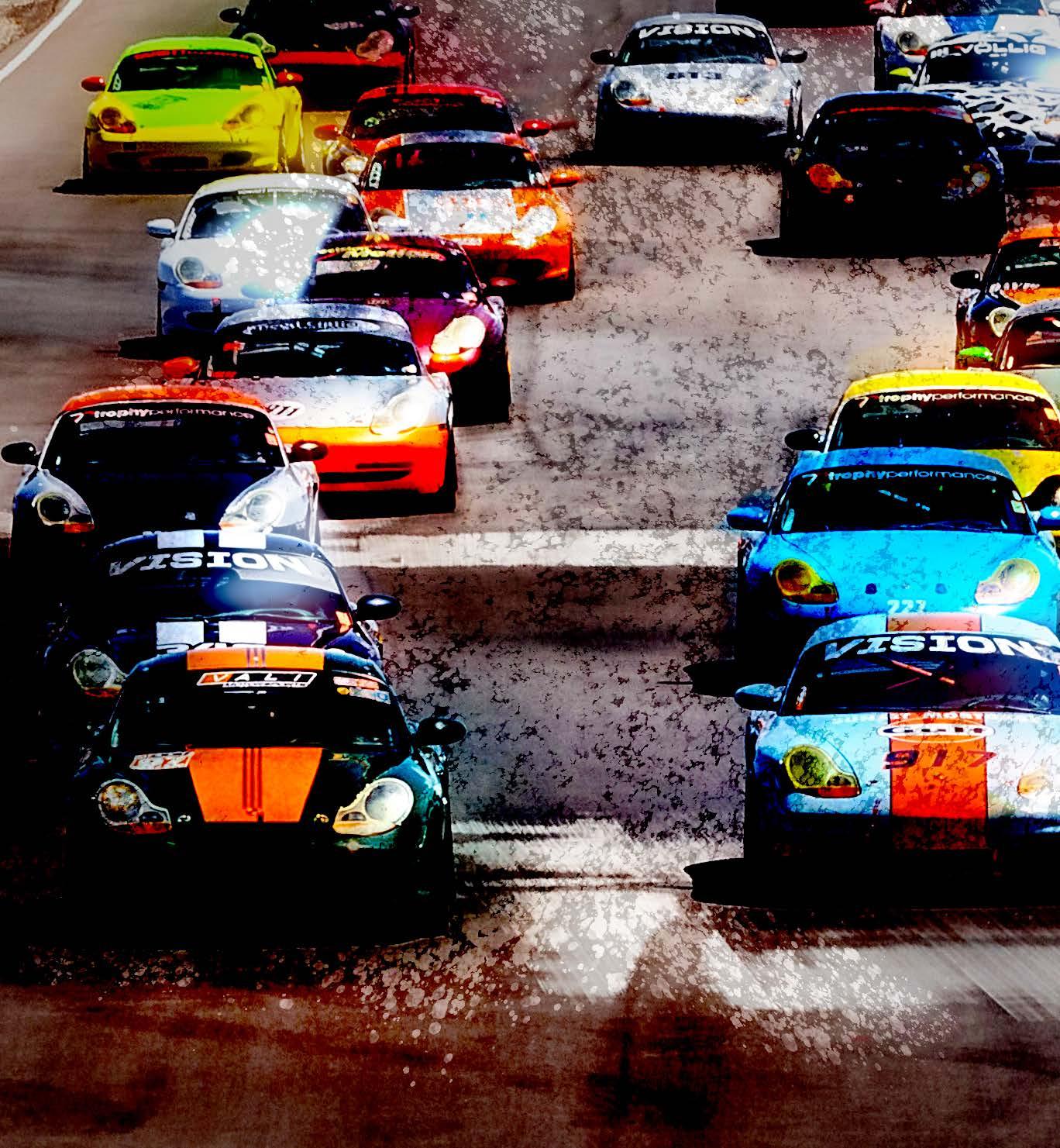

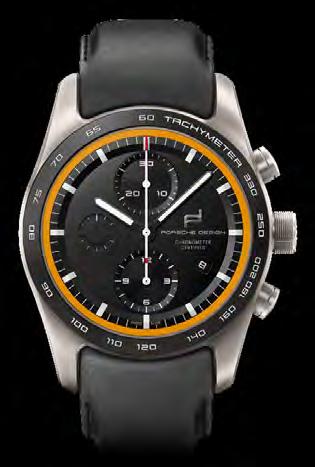
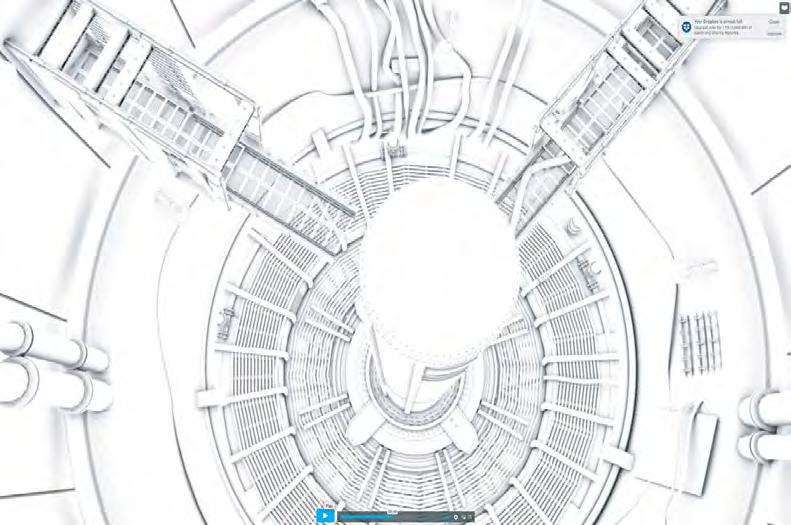
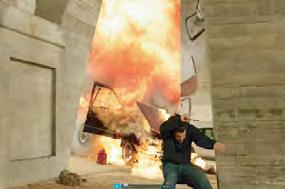

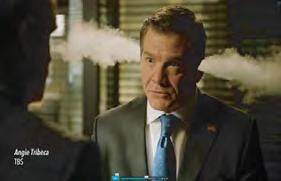
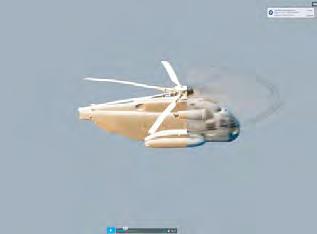

















coming down to the wire! With only one more event left in our 2022 season, Ryan Moore brings us up to date on what’s going on at the front of the pack with our BSR racers...Chet Kolley gives us his take on the Spring Mountain Racers Clinic...Alisha Wray writes about a guy nicknamed Hollywood...Andrew Weyman reveals his worst day at the track...Tom Layton shares his winning formula by competing in our SIM series and Steve Eisler reports about learning a new track.
hope you all had a great Thanksgiving...Now it’s time to hit the track for our season Finale. See you all at WSIR! Don
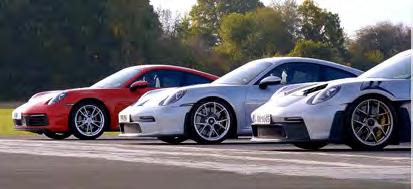
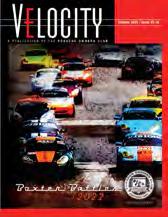
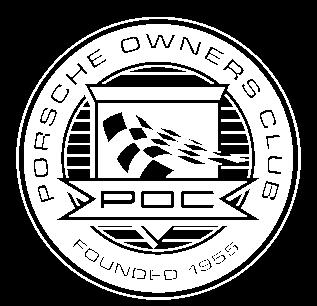
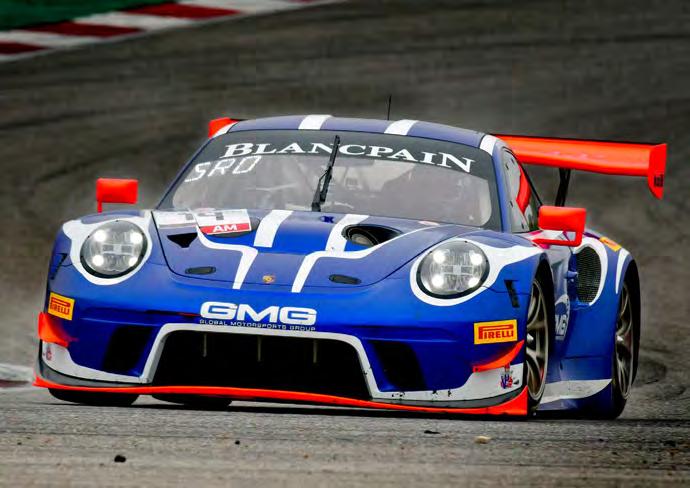
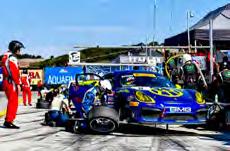
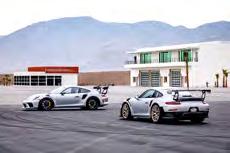
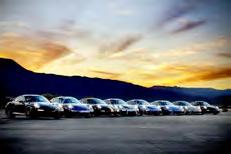
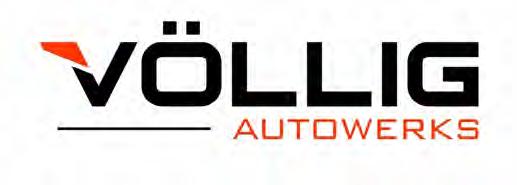
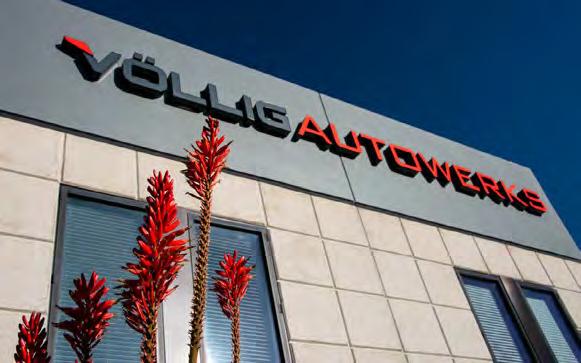
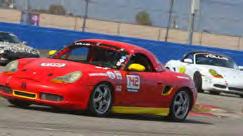
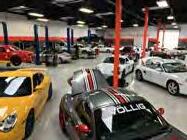
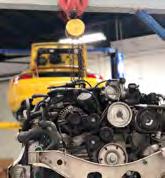
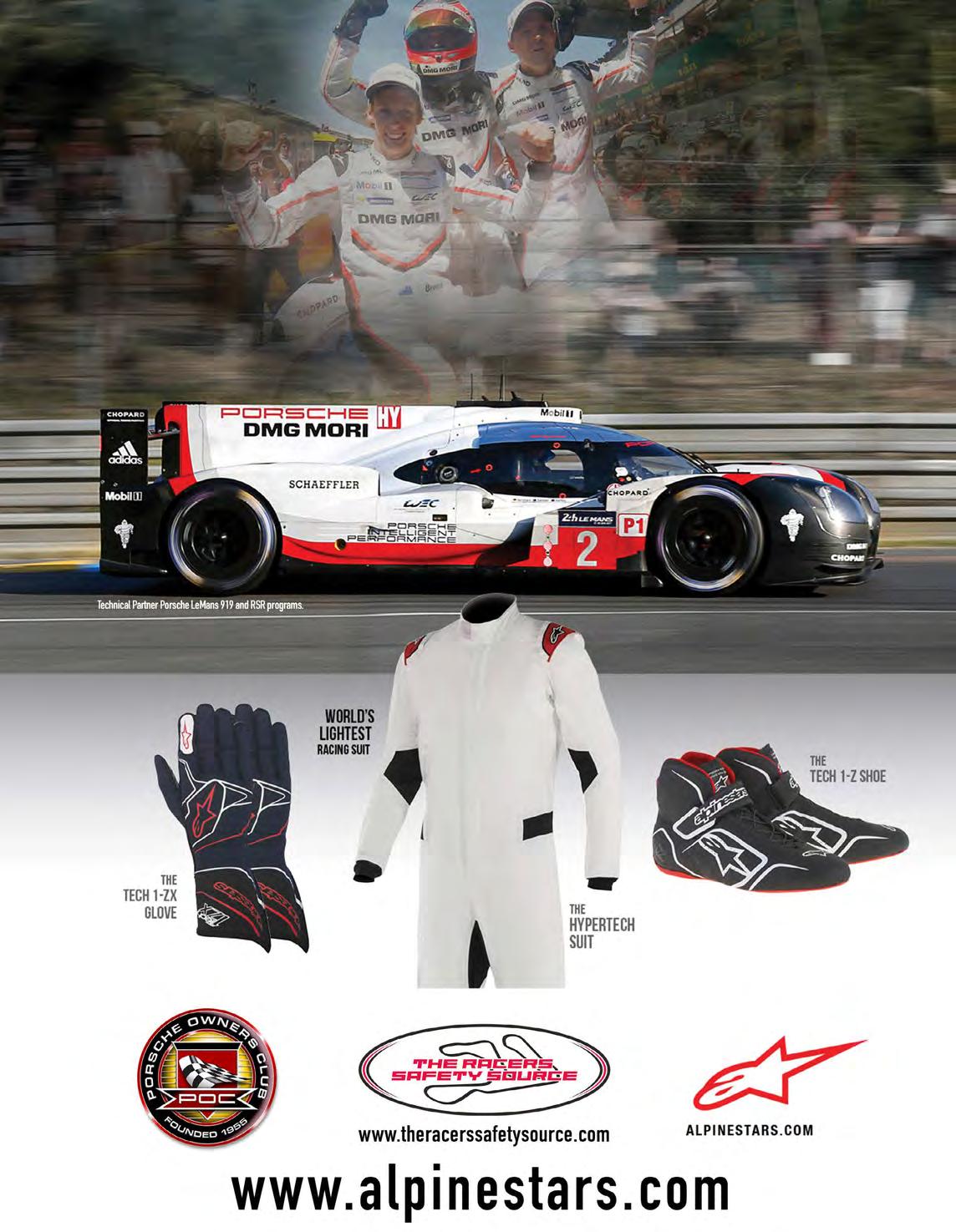
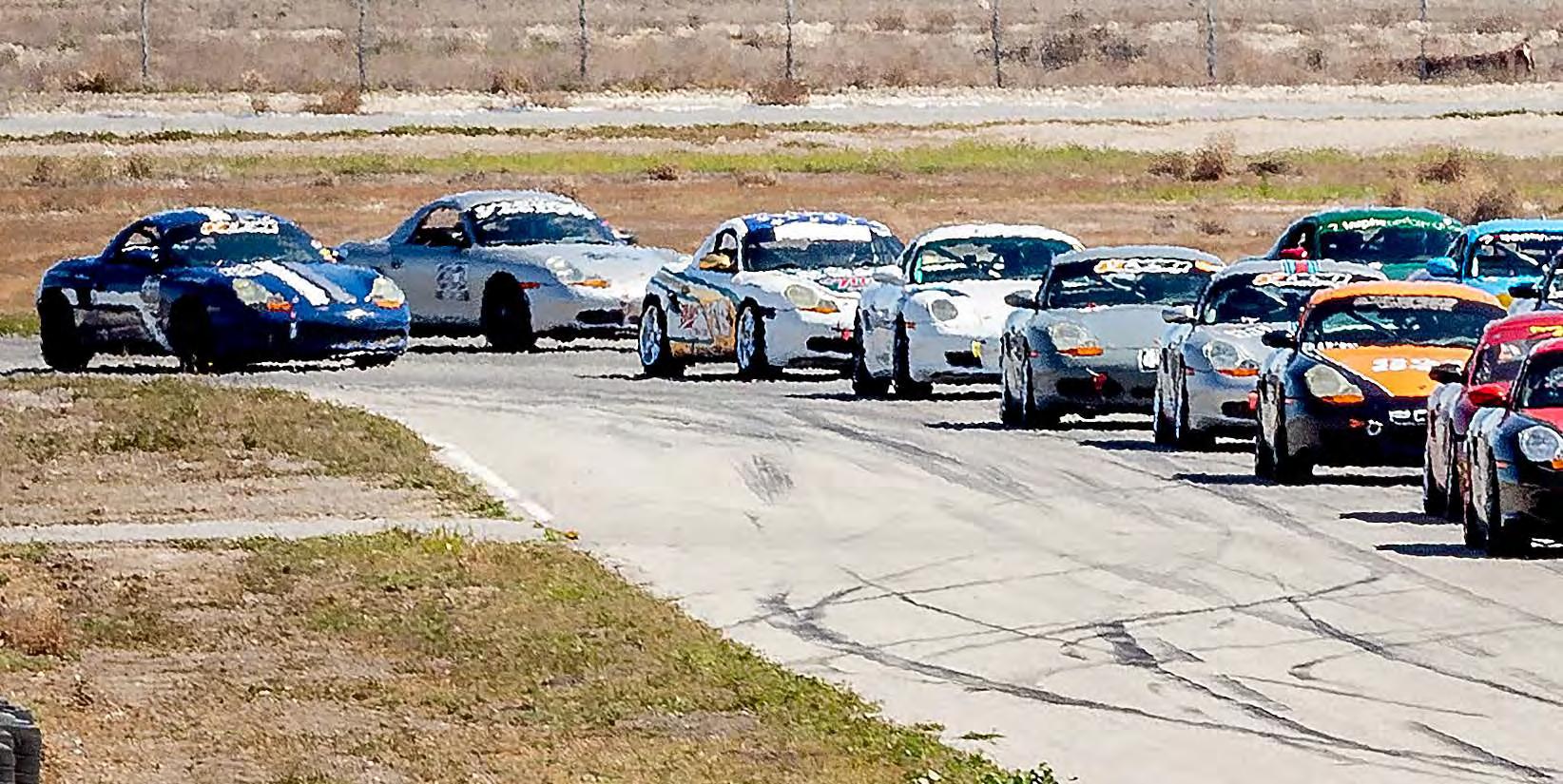
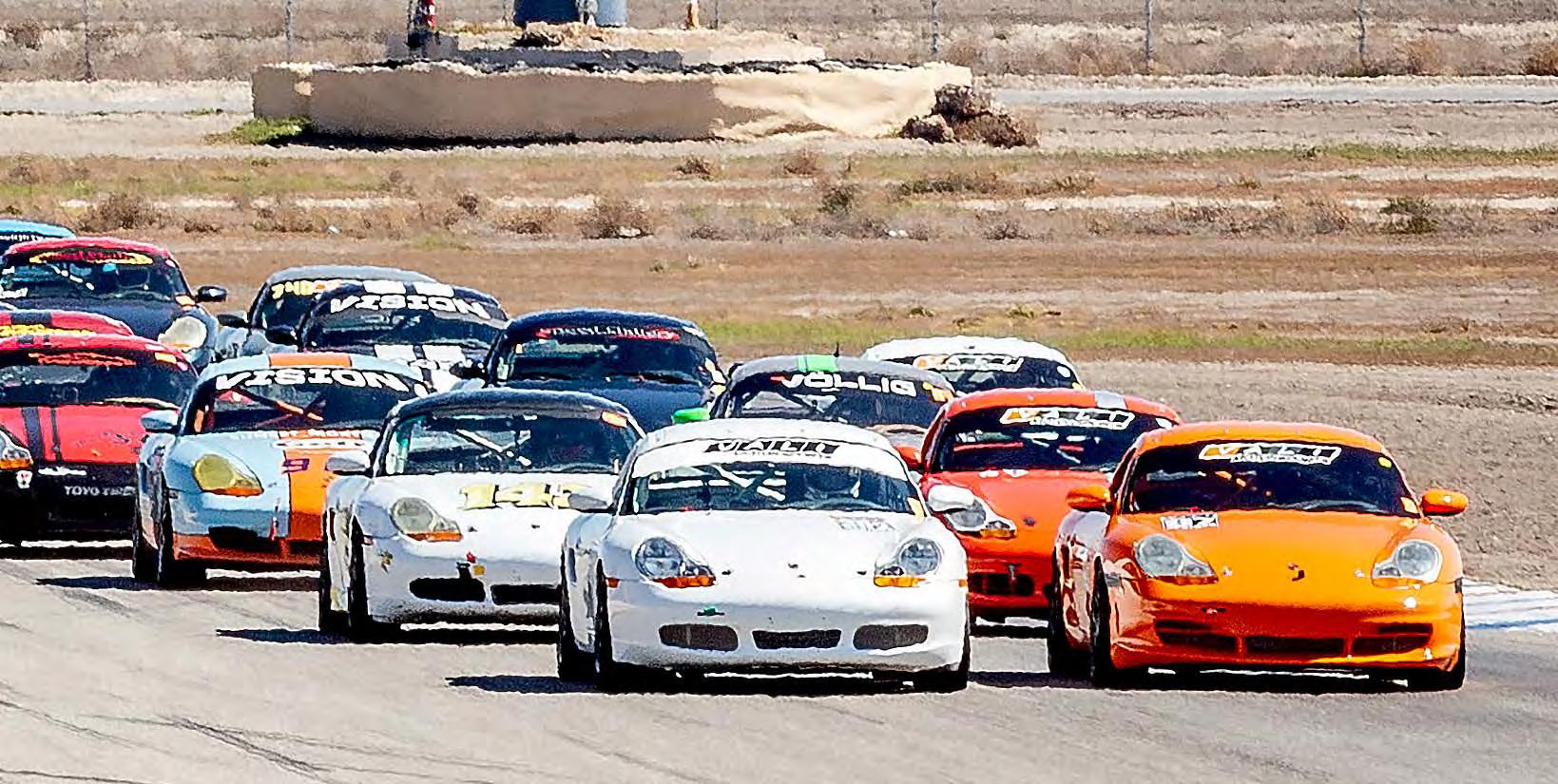
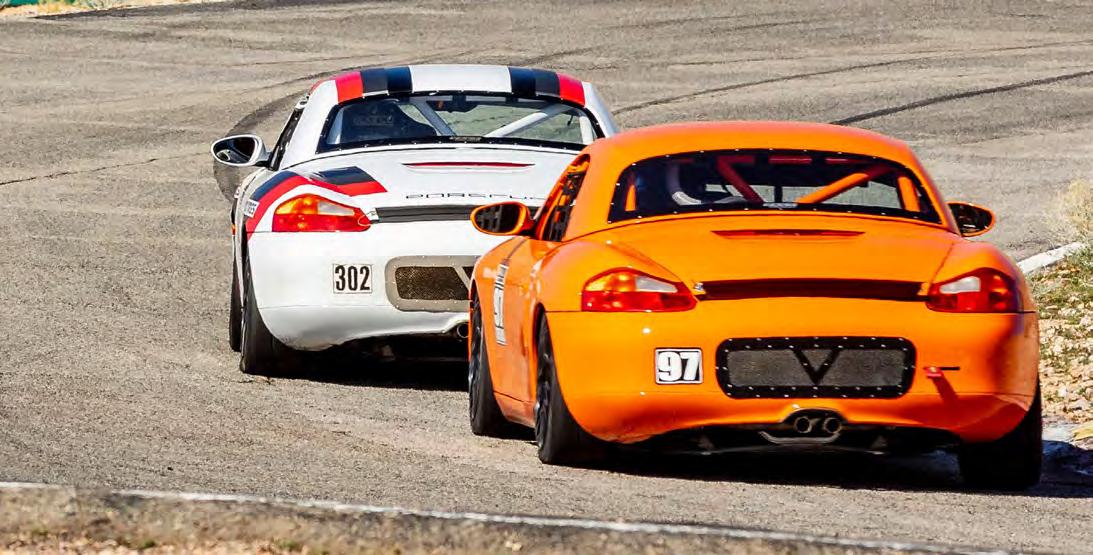
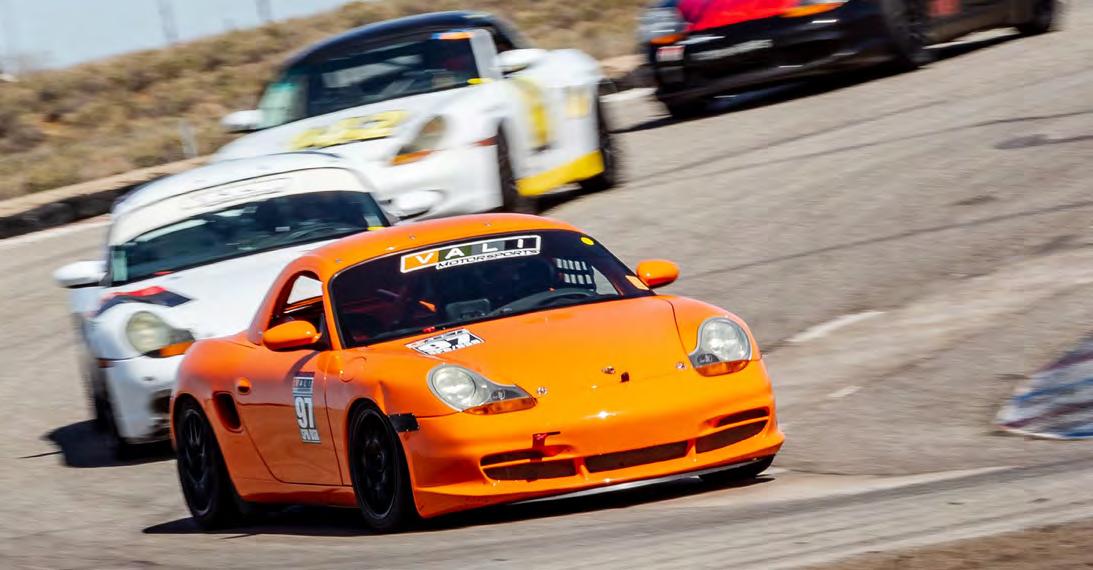
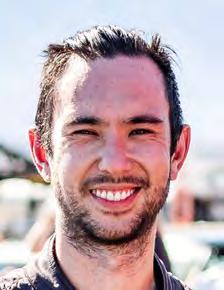
Another year, another incredibly competitive season of racing in BSR! For the uninitiated, BSR is our Spec Boxster racing series in POC and it’s one of our most popular racing classes. It shares similar regs as the SPB class run in other Porsche clubs. Lower running costs than GT-class racing, limited modifications, fixed power & weight, and a cap on weekend tire allotments - these all add up to create an ex tremely competitive field that is easy to jump into. Since the cars are practically all equal, the racing predominately comes down to pure driver skill. As a competitor in their 3rd year in the series, I can tell you there are some extremely talented drivers in BSR.
From our inaugural 2022 race at Willow Springs in February, the heavy hitters were in play. The highly-talented young phenom known as James Mclaughlin (2020 Rookie of the Year) swept the weekend with victories in both of the 2 races, but the beloved Norseman Anders Hainer - finishing 2nd both races - made sure that was no easy feat. I am told the battles between them were epic, swapping positions multiple times and never being more than a car length apart. Our very own John Momeyer rounded out the podium with 3rd in both races. A large incident at turn 1 on the start unfortunately ended the race early for Joe Weiderholt, Scott Craig, Andrew Weyman, and Rob Walker - all highly competitive BSR drivers. For Joe, Scott and Andrew, this would end up having large implications for their seasons as they spent sev eral months recovering both body and vehicle after this incident. Next up, Buttonwillow in March. Although still early in the season I can vividly remember the heat from this weekend. With several of our
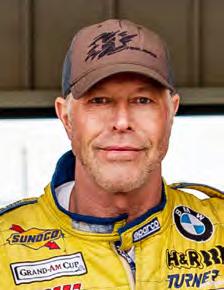
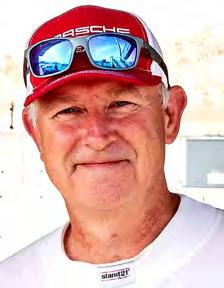
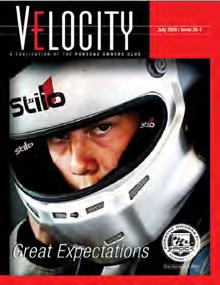
usual top drivers out of contention, some interesting new possibilities opened up. Anders took a clean sweep of the double-points weekend, winning both races, Mclaughlin and Bryan Van Noy took home 2nd place finishes, and Chris MacDuff and Dallas Carroll both took home 3rd place finishes.

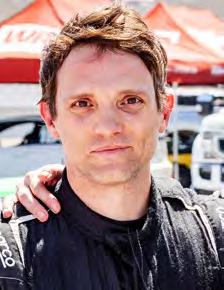
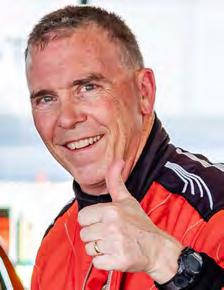
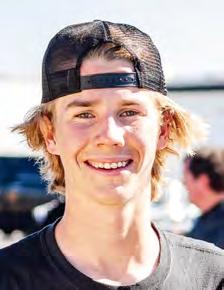
April brought us to the main Mansell C configuration at Spring Moun tain Motorsports Ranch in Pahrump, NV. With Mclaughlin absent this weekend, Anders was likely checking traffic on his way home while he easily cruised to victory in all 3 races. Marc Kolbe, Dallas Carroll, and your humble reporter each got a single 2nd place, with Dallas, myself, and the new hotshoe Riley Giacomazzi taking home 3rd place finishes. I can report some of my personal favorite battles of the year this weekend with Riley! His racecraft was top-notch, with the speed to match. At only 18 years old, I’d put my money on him. Honorable mention to Karen Robinson who qualified P2!
May saw us back at our ‘home track’ of Willow Springs for our Annual Tribute to LeMans 4-hour enduro. With only 2 BSR races compared to our usual 3 in a weekend, points were sparse and drivers had to make the best of their limited races. Malcolm Van Halen showed up and did just that, winning his maiden POC outing of the season.
James Mclaughlin took home 2nd, and Drew Waterhouse, also in his first POC event of ‘22, took home 3rd. On Sunday, Anders took the win with Mclaughlin in 2nd again and Paul Filsinger taking home 3rd. Our last event prior to the summer break was the beautiful Utah Motorsports Campus in June. Bryan Van Noy won both races on the Full configuration with Dallas Caroll and Rob Walker each getting a 2nd place, and Rob and John Momeyer each getting a 3rd place. On the Outerloop configuration, Dallas Carroll reigned supreme and took the victory with Rob Walker taking 2nd and Van Noy scooping up 3rd.
With over half of the 2022 season’s races behind us, let’s take a moment to reflect on the overall points chase. At this point Anders had a massive lead with 231 points, as is tradition. In second overall was Bryan Van Noy with 136 points, and in third was Dallas Carroll with 120 points. Nipping closely at their heels were John Momeyer with 112 and Chris Macduff with 109 points. Although Anders’ lead would prove tough to beat, there remained a very tight field fighting for 2nd place and beyond.
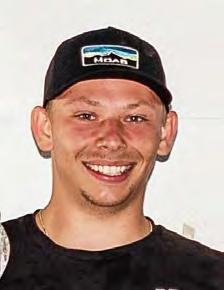
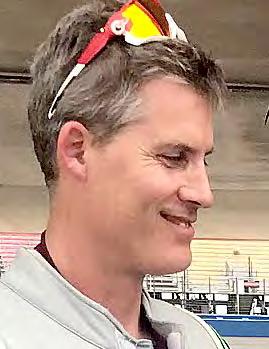
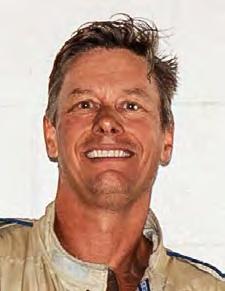
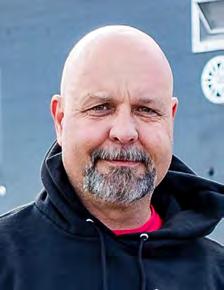
The next event was our annual trip up to Northern California at the well-known and loved historic Sonoma Raceway. The hard walls outside of turn 10 claimed many racecars this weekend, as they often do. Anders again took 1st in all 3 races of the weekend, with Mark Smith, James Mclaughlin, and Malcolm Van Halen each taking a 2nd place, and Mclaughlin, Malcolm, and myself each taking a 3rd.
After taking the month of August off, we returned to racing at Cal Speedway on the Roval configuration in September for our absolute hottest event of the year. The average temperature during the day hovered around 110° F, pushing tire and brake temps to the limit. Yes, I was definitely using my CoolShirt that weekend! Fortunately the venue was kind enough to allow use of the air-conditioned press room which served as a necessary respite from the overbearing heat outside. Scott Craig was in prime form this weekend winning both races, one of them from DFL. Myself and John Momeyer each got a 2nd place, and myself and Bryan Van Noy each managed a 3rd place finish.
Halloween weekend saw us at the brand new Charleston Peak config uration at Spring Mountain Motorsports Ranch. The FIA grade 3 track boasts super smooth, fresh pavement with very flowing lines and buttery kerbing. A couple blind corners and off-camber double apexes
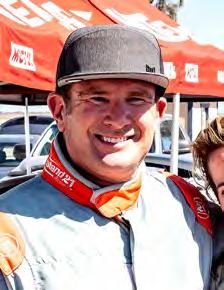
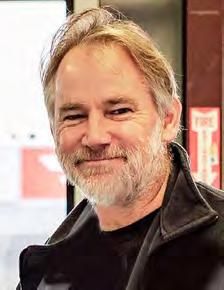
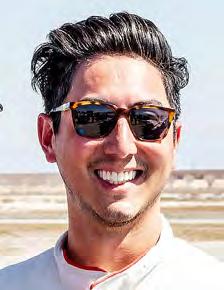
add complexity and challenge to this new config. Despite it being a new track to most drivers, Anders proved his abilities by winning both races. Rob Walker and Scott Craig each took home a 2nd place fin ish, with Jason Bason and Riley Giacomazzi each taking home a 3rd. Honorable mention to Nick Khilnani who managed a 4th place and had a strong showing all weekend. This now leaves us at our final event for the year, our return to Willow Springs in the beginning of December. Anders currently sits at the top of the points standing with 371 points, followed by John Momeyer with 177 and myself with 181. With a minimum of 15 races required
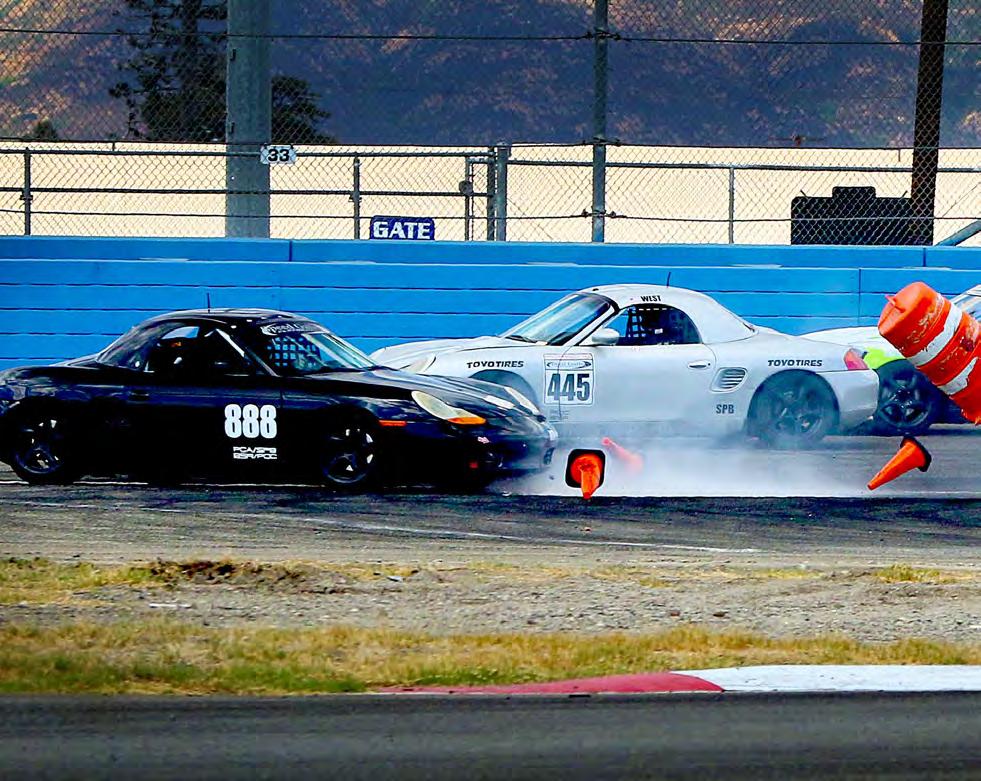
to qualify for the season championship, a significant portion of the competition is showing up to events consistently. Nick Khilnani and Klaus Drehmann will also qualify for the season, and those on track to reach the 15 race minimum at Willow are Marc Kolbe, Larry Haase, Andrew Weyman, and Alisha Wray. Way to go! Another requirement for the season is to accrue at least 200 service points, so make sure to volunteer when you can and give back to our awesome club. We are all looking forward to closing out another great season filled with intense racing, so see you at Willow!


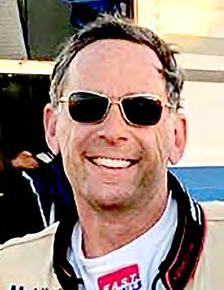
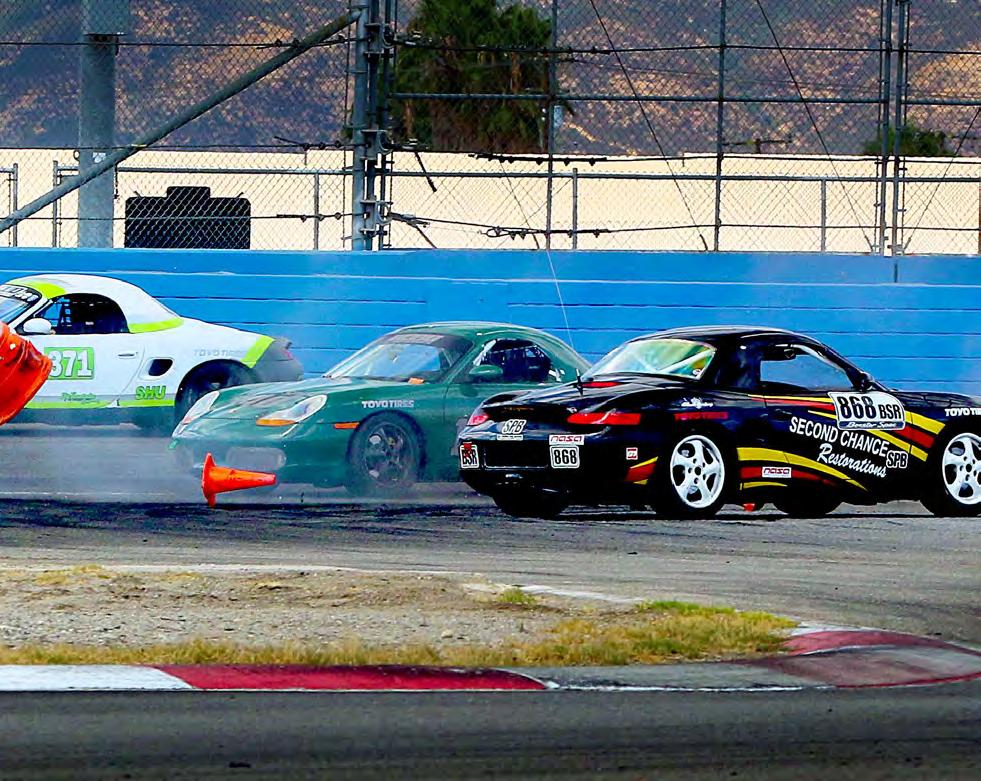
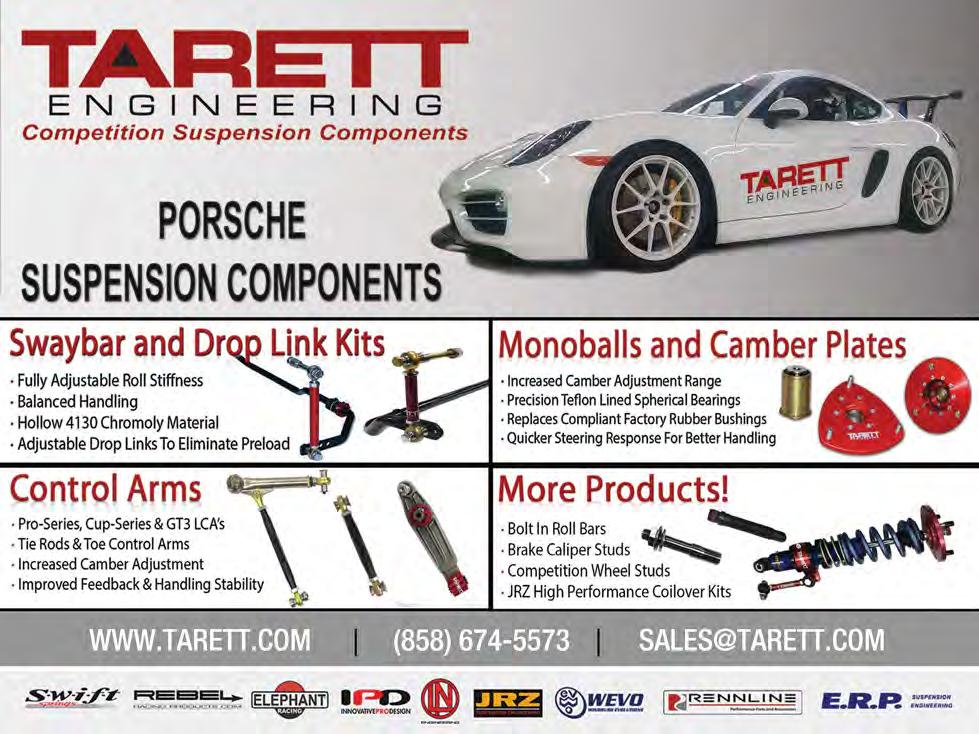
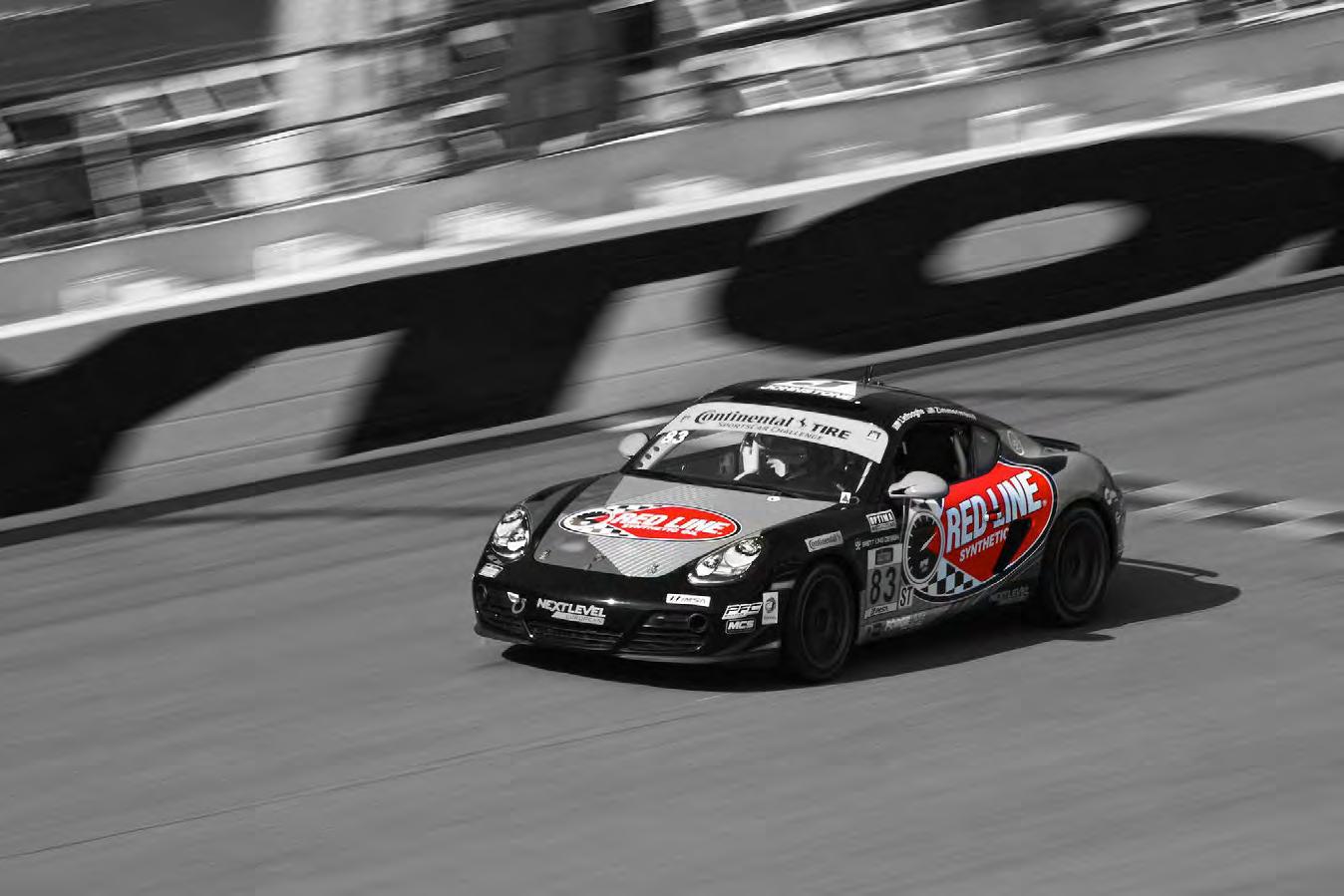


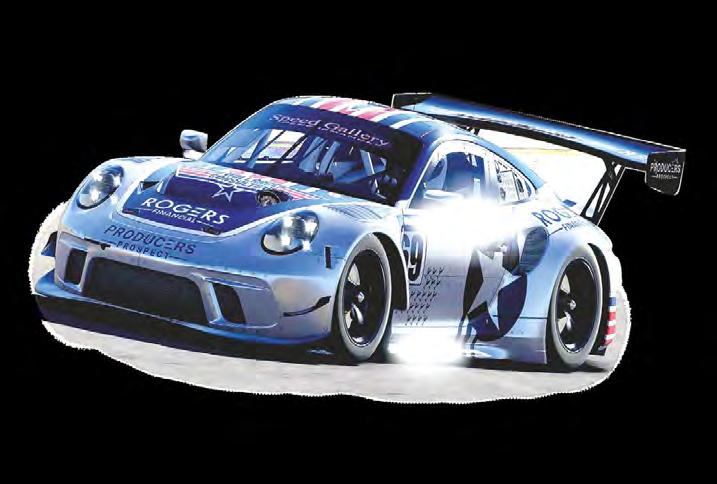
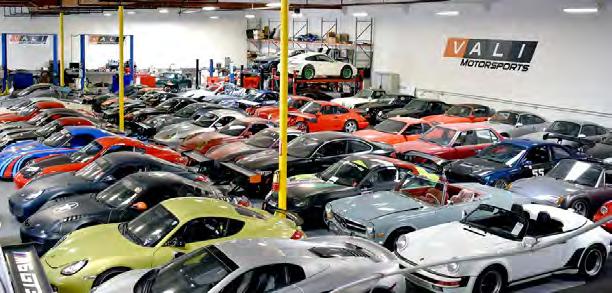
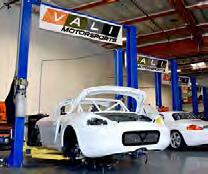
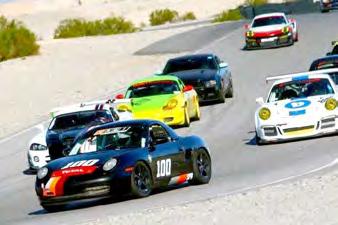
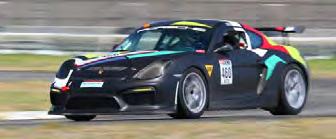
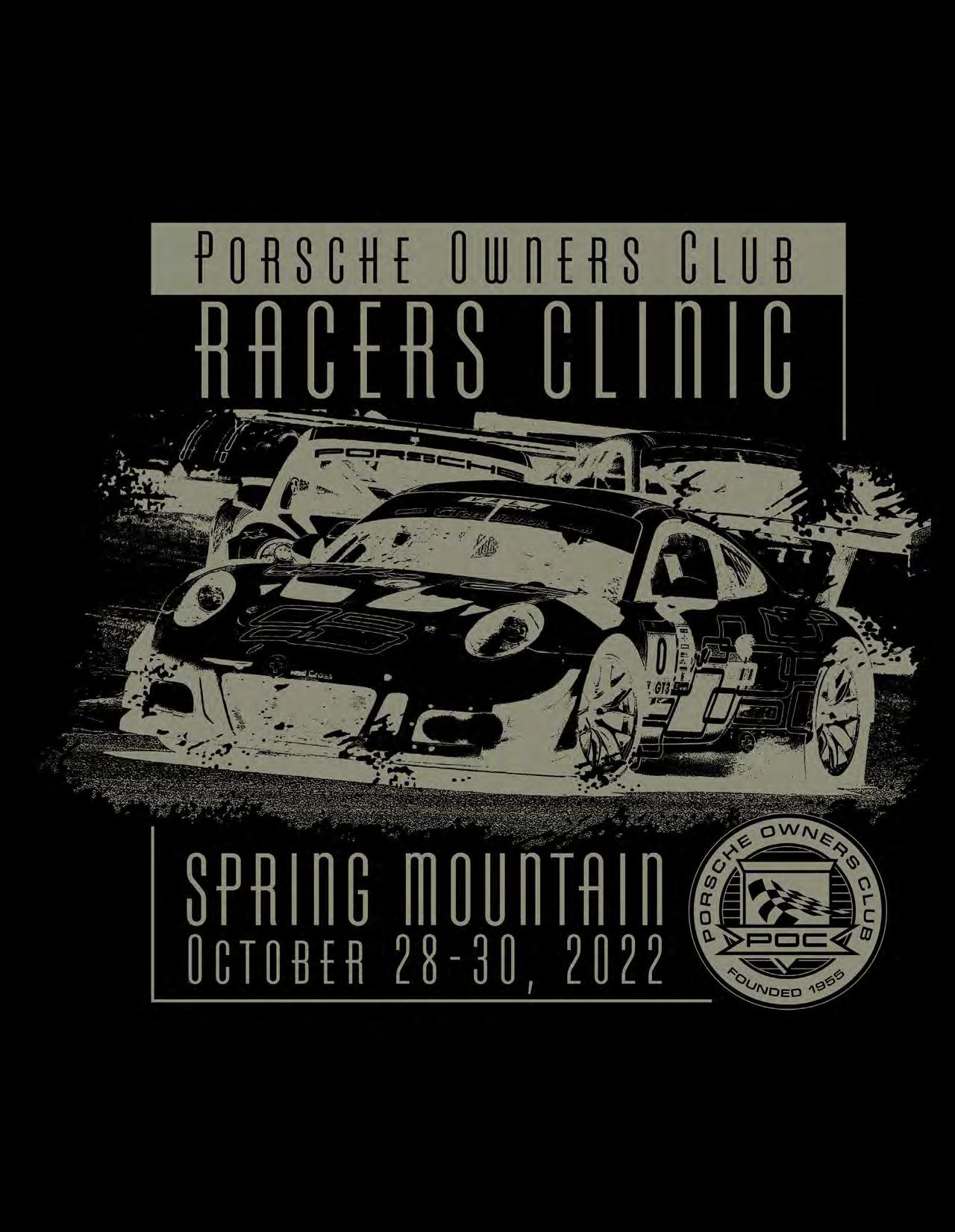
Three years ago, I completed my second POC racer’s clinic at Spring Mountain. To say that weekend was by far the most fun I’d had behind the wheel of a car or frankly any sporting event to that point in my life would be an understatement. I knew what this group of future racers were about to experience. They were going to pull together all of the driving skills they’d learned to this point, add in some wisdom from the classroom about racing – in particular racing with the POC – and demonstrate on track to themselves, to their fellow drivers, and to the Chief Driving Instructor that they had what it takes to race competitively with the POC.
The goal of the racer’s clinic is to prepare drivers for ‘one of the most intense and exciting experiences of your life.’ The foundation of that preparation is to learn, understand and accept the philosophy of club racing. The POC has a renowned program to prepare and produce safe, competent, and competitive racers, and the clinic component is perhaps the biggest and most important step in the program. It takes years of preparation – PDS, Time Trials, other equivalent experiences, a substantial commitment, and it can be it bit daunting.
As the group assembled for the first classroom session with Dwain Dement, our Chief Driving Instructor, and his assistants for this Clinic, long time POC racers Mike Monsalve and Duane Selby, the uniqueness of this Clinic was clear. We were at someplace new. Charleston Peak is Spring Mountain’s brand new, 18 turn, 2.76 mi, FIA Grade 3 track, and this was POC’s first event there. New classroom, new track layout, new track surface, new entry and exit procedures. Everything was new. Every Racer’s Clinic has a bit of nervousness in the air, and the newness of Charleston Peak probably added a bit to this weekend.
Fortunately, there were 3 Spring Mountain members in the class, and they helped the rest of the drivers learn the track in a lead-follow fashion. As the weekend progressed, the nervousness was quickly replaced by eagerness and big smiles all around.
Branimir Kovac pitched in with another new element to the clinic that seemed to be a big suc cess, and that was the use of real POC video to demonstrate the concepts being discussed by Dwain, Mike, and Duane. And since forward-facing video is a requirement of the GCRs for racers, using it during the clinic seems like an idea that was overdue. Seeing real demonstra tions from POC racing on the tracks we know to illustrate and emphasize specific points is invaluable from a learning and recall perspective.
From talking to several racers-to-be, this class had a fairly typical mixture of paths that had brought them to the clinic. Some people joined the POC and bought cars like BSRs or Clubsports specifically to go racing, and this was the culmination of the POC training ladder. Others joined us for the PDS to learn performance driving skills and the capabilities of their cars on track, and they found the very slippery slope... No matter how they got here, they found a fabulous learning environment, skills refinement through on-track exercises, and the camaraderie that results from the fun and trust-building of the entire weekend.
While future racers came here from various paths, there was certainly a favorite car in this class. More than half of the attendees will make the BSR class even more fun and com petitive in the coming seasons. Imagine fields of 20+ BSRs in Orange Cup Races! We also welcome a few more Clubsports to the Red Cup Racing Group.
The culmination of each Racer’s Clinic is the Clinic Cup Race at the end of the weekend that pulls together all the classroom and on-track training into a thrilling session that’s a demon stration of safe, sportsmanlike, and competitive racing. From the drop of the green to the waving of the checkered, for many it’s the most exhilarating experience imaginable. Great job to this group for successfully completing their Clinic Cup Race with new friends and competi tors on a brand new track.
Congratulations and welcome to POC racing, Class of Fall 2022: Jake Stone, Kim Fowler, Brian Cooner, Diane Johnstone, David Ewles, Andy Sloane, John Connelly, Grant Murray, Austin Bowen, Mark Seiler, William Robinson, Alistair Belton, Alan Watts, Mickey Giacomazzi, Patrick McDermott, Matt Juarez, Ryder Liu, Adam Abrahms, and Satakal Khalsa.
Looking forward to seeing you on the track!
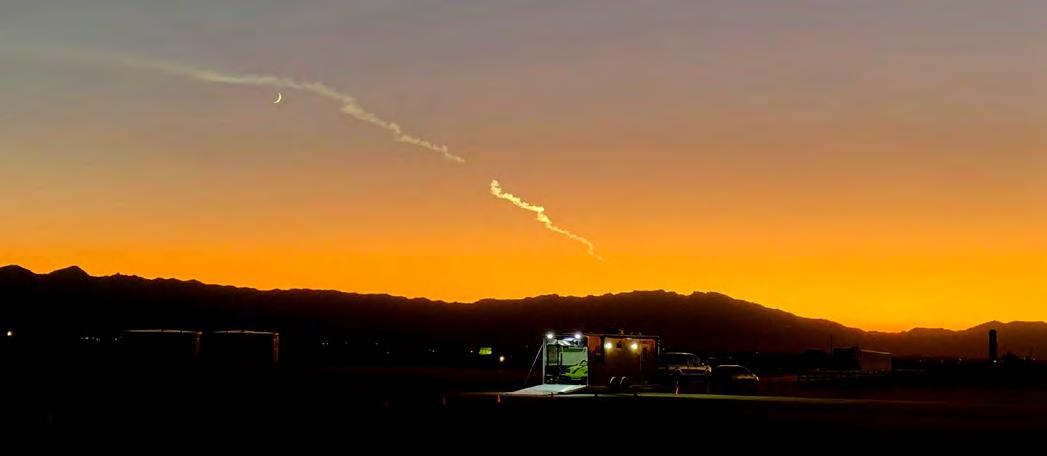
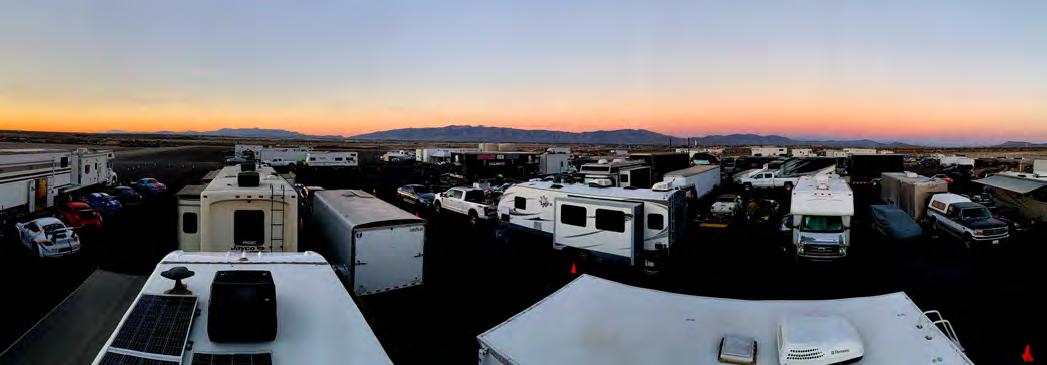
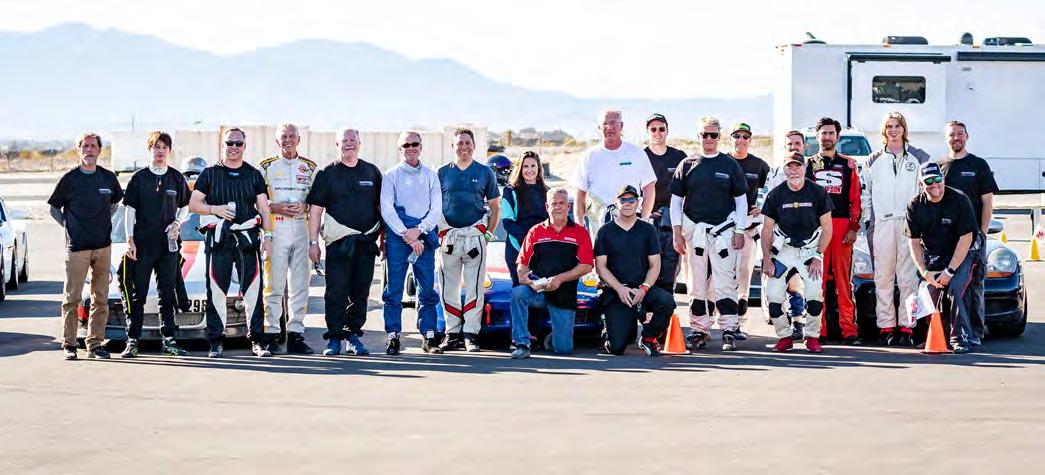
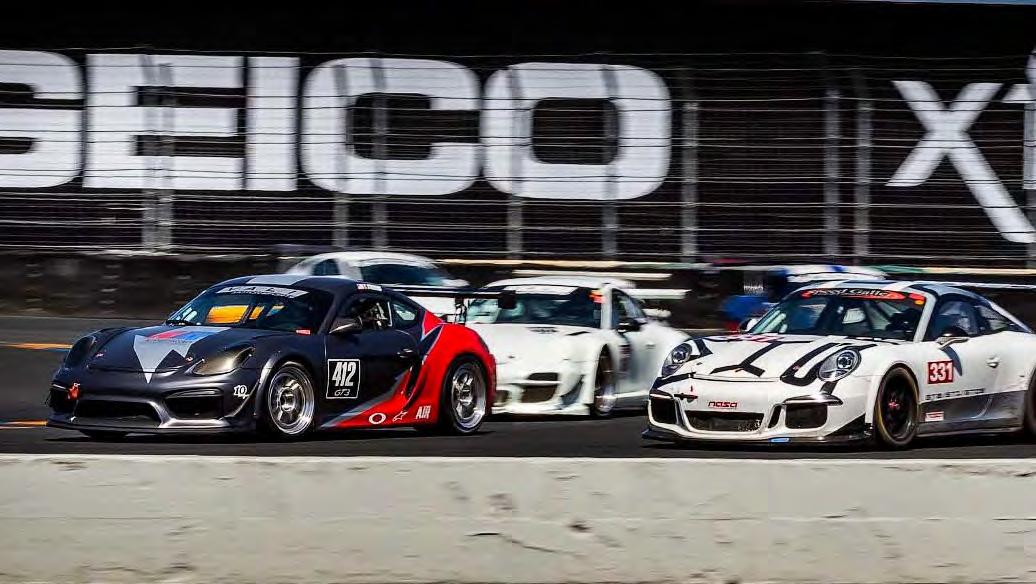

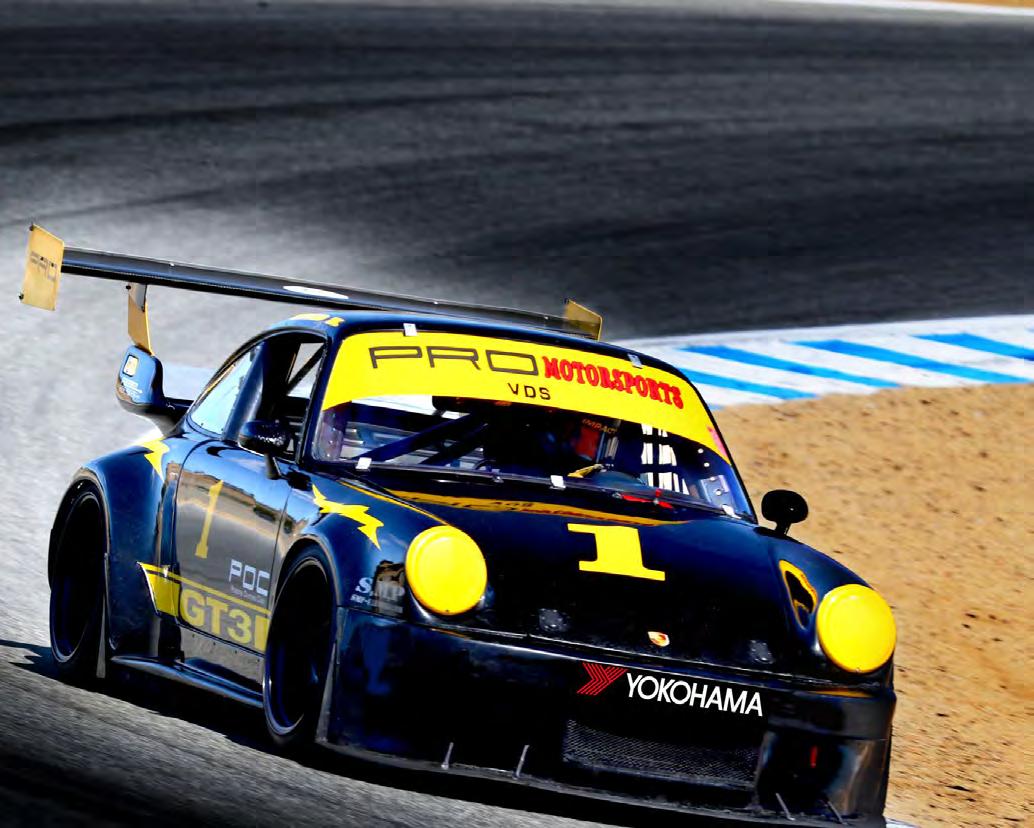
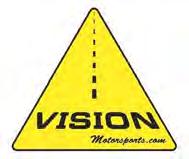
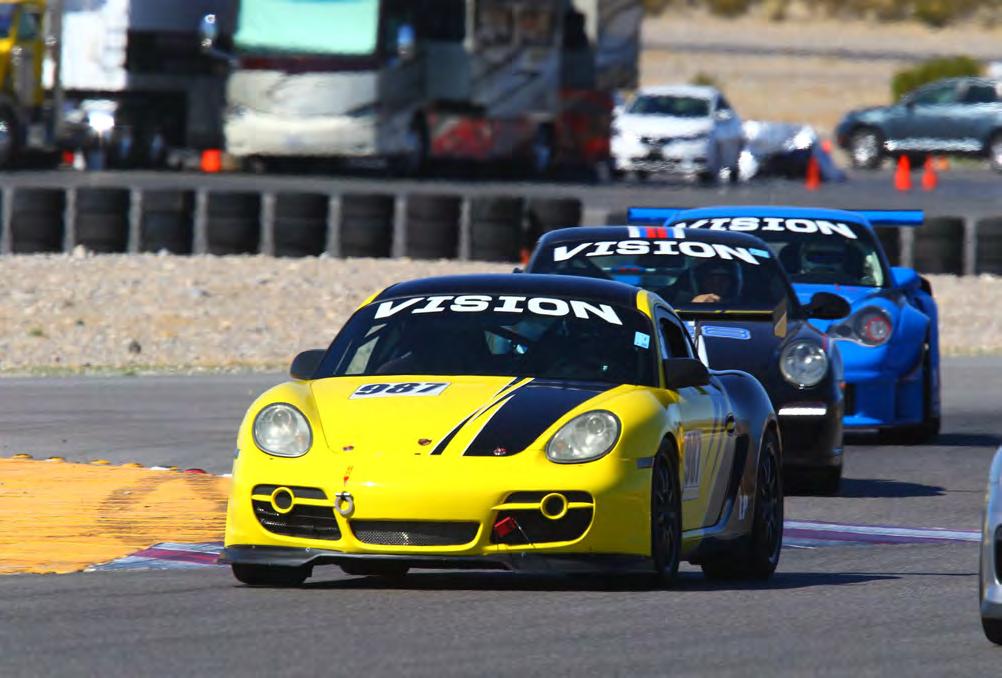
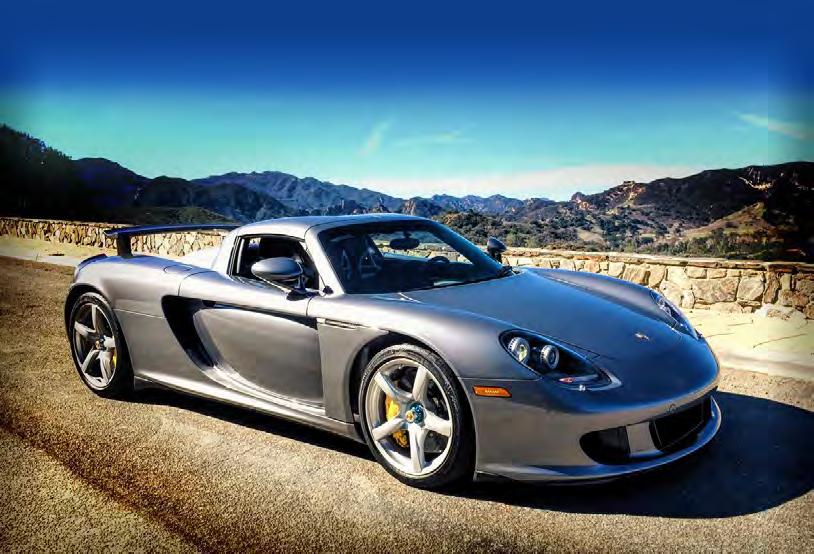
My best day at the track is when I kick butt. My worst day, when things go wrong, is my second-best day. I find endless joy in doing something I’m sometimes really bad at. It’s called racing.
Handing over a twenty-dollar bill to the guy at the track gate always feels so good. Putting on a wristband, my pulse, normally measured in bpms, shifts to rpms and revs up. Sucking in my post-Covid gut and zipping into my racing suit is like being hugged by my wife after having been apart for a month. Inhaling the fragrance of Molecule detergent infused in my laundered gear releases oxytocin in my body and my brain cells upshift. Cramming myself into the shell of my seat, the click of my six-point harness being fitted into its cam lock, the bittersweet smell of spilled fuel and overworked brake pads, the vision of catching the car in front of me and the gritty taste of flying dust after putting two wheels off all combine to send my spirits soaring. Back in the paddock, blowing my nose and seeing dirt from T9 at Willow Springs in my tissue is, well, thrilling.
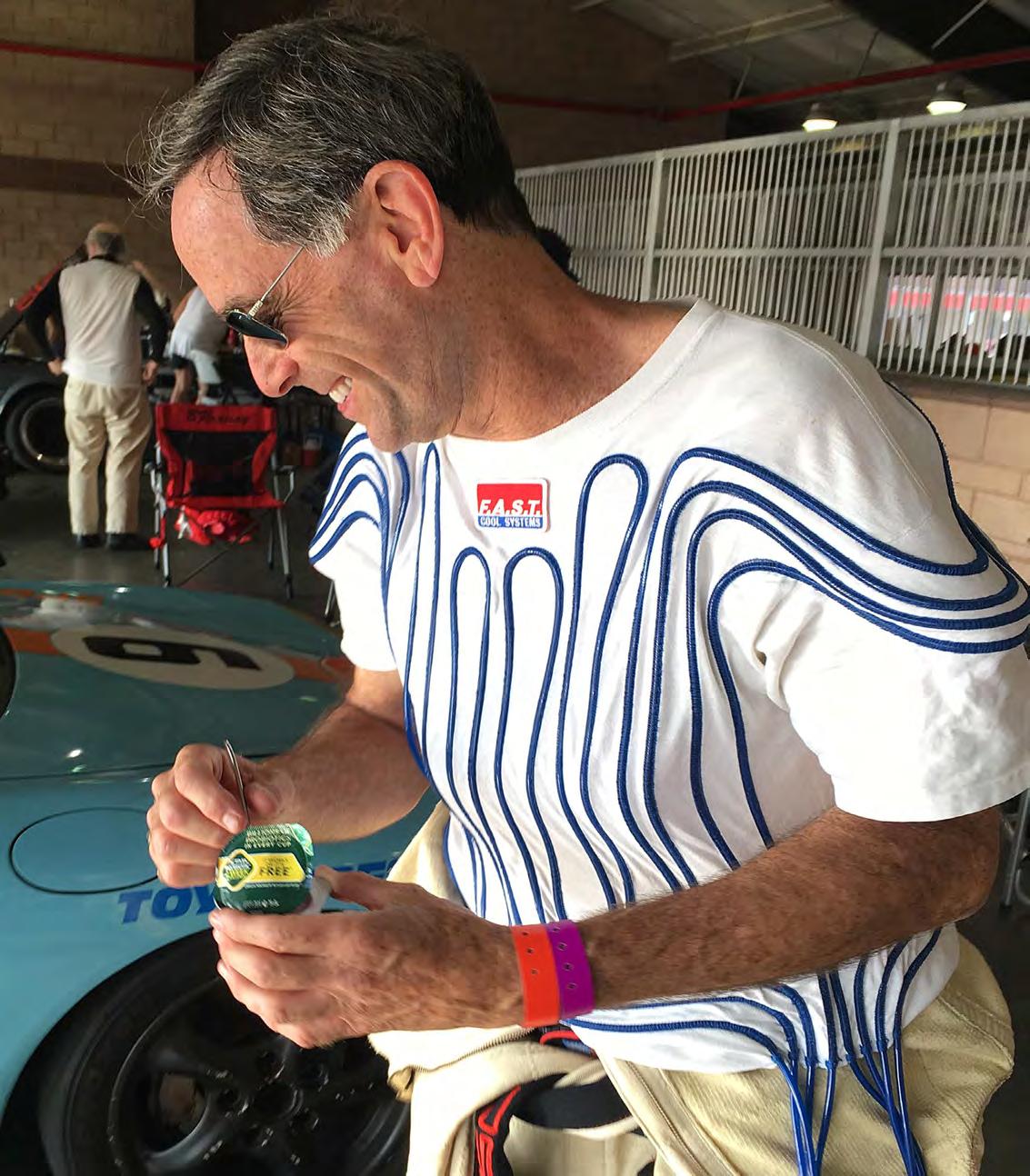
I feel so alive at the track. When I have an especially good race start it feels soooo good. Everything comes together in ultimate perfection. Smooth, fast and assertive. That’s how I drive. That’s when I’m at my best. Then there are the times when I’m at my worst. I brake too hard, miss apexes, or get to the throttle too late on a turn exit. I might depend too much on other drivers to make stupid mistakes so that I can move up a place or two. My worst day? No. It’s what I call my second-best day. So why the endless joy when so many things can, and do, go wrong? Frankly, it’s kinda difficult to explain. Racing is unlike anything else in my life. Not that my life isn’t exciting. As a matter of fact, it’s a darn good life and I’m extremely grateful for it. Producing and directing television shows for many years was a great career for this kid from the streets of Brooklyn. I won’t deny that it was often exciting and sometimes exhilarating, sometimes exhausting and sometimes ulcer-producing. I worked with many wonderful, tremendously talented actors, writers and crew members. My job afforded me the opportunity to buy a Porsche. It was a gift to myself that opened up new paths of self-discovery. Physical challenges. Facing fears. Building confidence. Learning, learning, learning. Most importantly, driving with the POC has introduced me to so many more incredible people from so many different walks of life. People who have taught me so much about the mechanical wonders we know as our cars. People who are there for you when you need a new mass
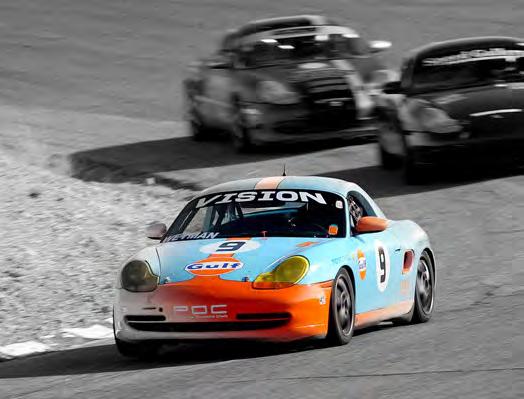

airflow sensor, brake light switch or transmission. People who love to share stories about the race that got away, offer encouragement and congratulations. People who are willing to answer questions about what gear they’re in at a particular turn or a front sway bar setting. Instructors who can explain the physics of balance and weight transfer under braking and acceleration and are willing to strap in and hold on. There are no better people anywhere. I feel extremely fortunate to be able to participate in POC events and experience the many highs and lows of racing. I treasure the friendships I’ve made. The POC has become my chosen family. There are days when everything goes smooth and fast. There are days when everything is a struggle. My worst day at the track is always my second-best day. I wouldn’t trade it for anything.
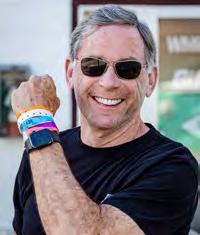
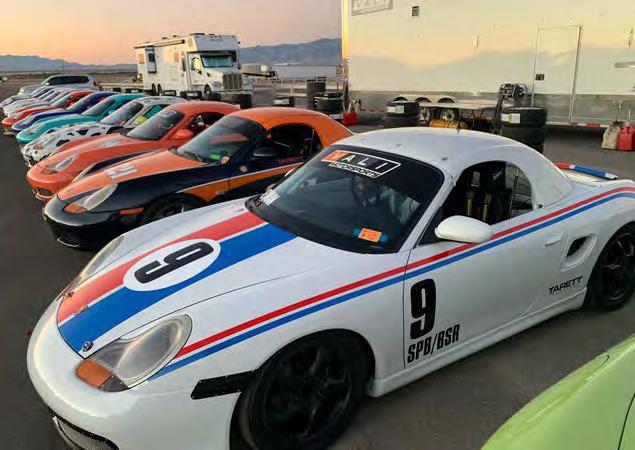
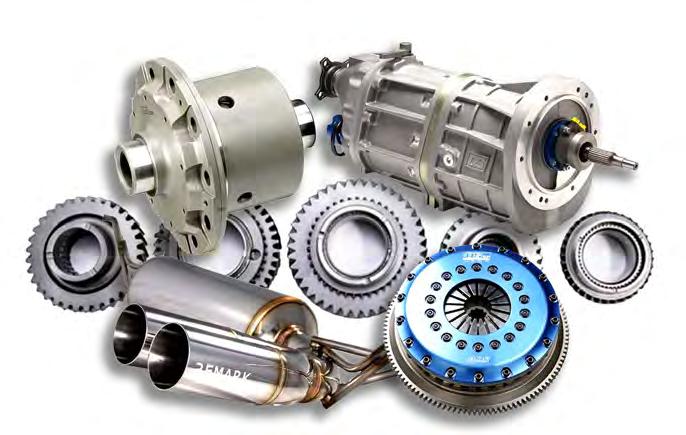




911 Design is a full-service repair and restoration facility located east of Los Angeles in the city of Montclair.

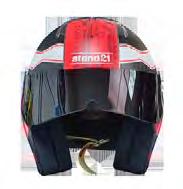
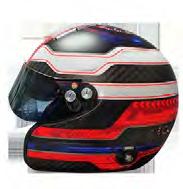
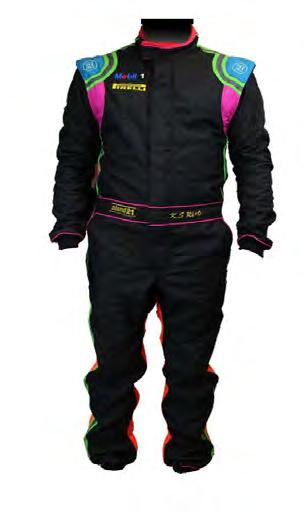

In addition to offering standard service, repair and restoration for all Porsche® models, we are known for and specialize in custom fabrication, design and performance upgrades.
All of our services are vertically integrated which means we keep all repair, fabrication and auto-body in-house. 5505 Moreno Montclair, CA • (909) 982-9111 • nine11design.com
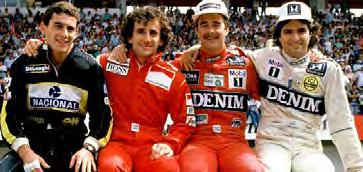
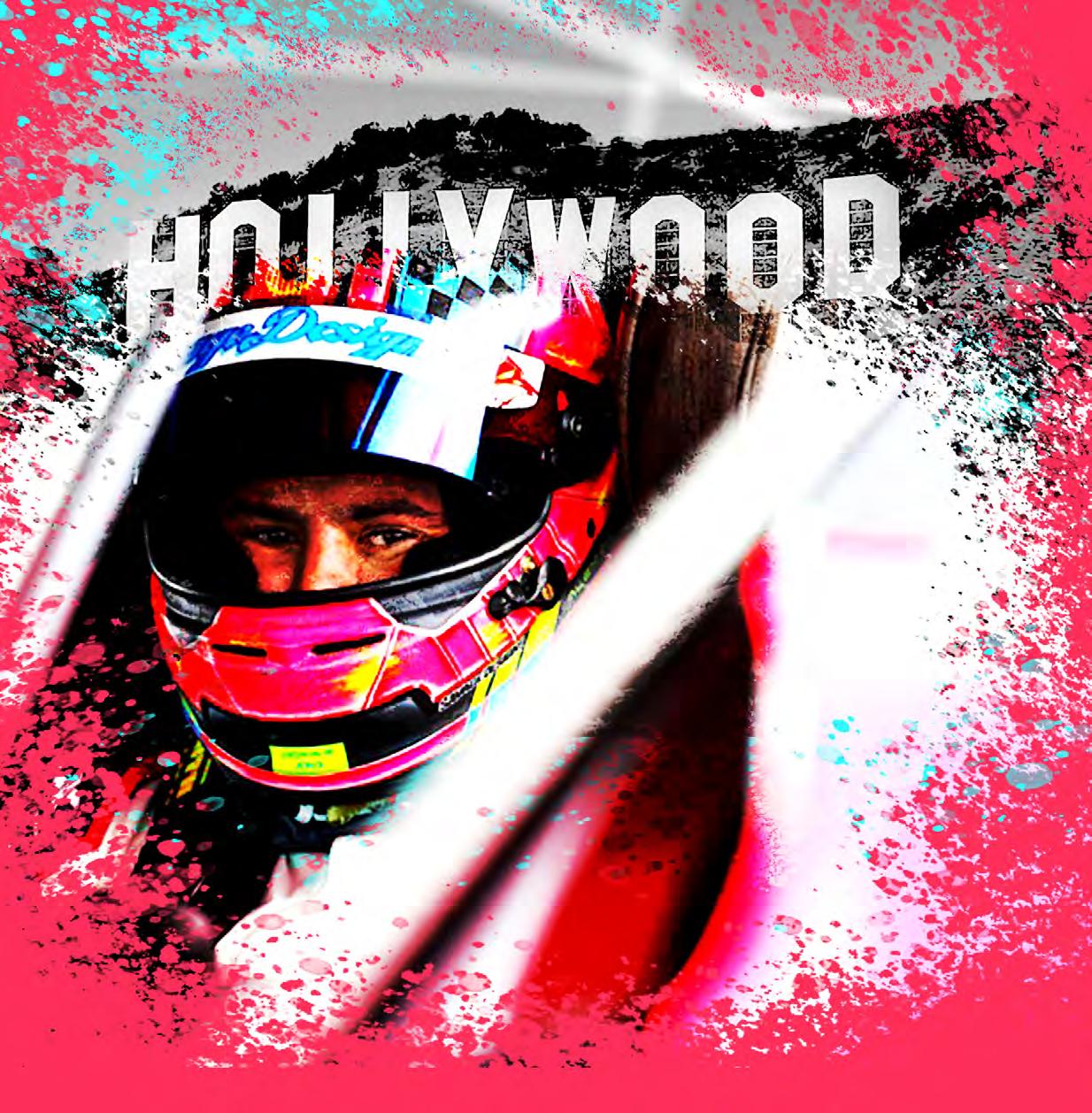
He was nicknamed Hollywood by his mom and members of another auto club. Alex Filsinger had a terrible habit of showing up to instructor meetings and driver meetings late with a Starbucks in hand, donning iconic sunglasses. That combined with his dramatic on- track style, “Hollywood” stuck. Alex was born in Guelph, Ontario October 16, 1995. He has one younger brother. Alex had a childhood dream to become a professional racecar driver. He began karting in 2008 and spent all his free time on racing sims and watching racing, he engrossed himself in all things motorsports and cars, specifically WEC/LeMans and the now-defunct American LeMans series. He always aspired to drive a 911RSR for Flying Lizard, and now finds it crazy that he drives a 997-cup car that he saw driving in the American LeMans Series at Mosport in 2008 and spent countless hours driving on his Xbox (the Valentineti /Xbox360 car).


After Alex’s family moved to San Diego in 2010, they took a long break from racing. In 2017 Alex and his dad Paul threw themselves headfirst into the Porsche world, Time Trialing with PCA SDR. Alex drove in his first club race in his 944 at Auto Club Speedway and was instantly hooked. He then had a coaching session at Laguna Seca in their 997 Cup car with Thomas Merrill in December 2020 where Merrill put him on his path to professional racing. Alex then stepped into a spec Boxster to develop his race craft and within a year went to Indianapolis for his pro debut at the Indy 8hr in October 2021. Alex’s family has been immensely supportive of his dream to be a professional racecar driver. His mother Michelle is his biggest fan, supporter, and Rock, keeping him sane in the paddock. If Alex has a bad drive, she is there to help redirect his mental energy and is also there to witness and celebrate all his successes.
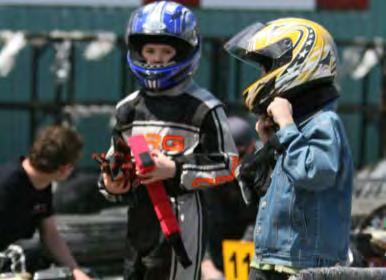
When I asked Alex, “what did you do to become a racer?” he noted that he spends a lot of his time on fitness and sim preparation. He also coaches driving as a way to expend his own abilities. He feels that nothing makes you a better driver faster than teaching someone else how to be a better driver. He also focuses on functional fitness, cycling for cardio and plyometrics for agility and muscle training, in addition to light-based reaction time training.
I asked Alex what he feels makes him a good racer? Alex studies his past drives and analyzes his data to learn his competition. He feels the more he learns about himself and his competitors, the better! Alex’s best character trait is his immense passion and tenacity for racecar driving. He is also a bit of a perfectionist, continually striving to improve as a driver, competitor, and coach. His worst trait is his short temper when he feels someone has been disrespectful to him. Luckily for Alex, he is extremely levelheaded on the racetrack, no matter what the circumstance, and does not allow his short fuse to hinder his decision-making process.
His favorite memory to date is standing on the podium with his family and friends this year 2022 winning at Indianapolis. Indy is personal to him, its where he started his pro career one year prior and an extremely storied, iconic venue. Winning at Indy was a major career accomplishment. When asked what his goals were for his future racing career, Alex stated he would like to compete and win 24 hours of Daytona, Le Mans, 24hr Spa and 12hr Sebring and believes his current path will get him there.
What does Alex’s perfect track day look like? One without drama or politics. He shows up, races hard and has fun doing it. At the end of the day, we are all here doing this for fun, he tries not to lose sight of that fact.
Being a new racer has been extremely humbling and for anyone who aspires to race, I asked him for his best advice. He said, “Just start! Get into every car you can, as often as you can”, but emphasized to go out with an agenda and a purpose. Always work on something. Somedays that might mean working on braking or tire degradation, lap consistency or finding pace in suboptimal positions, and with that encouragement - Off to work I go!
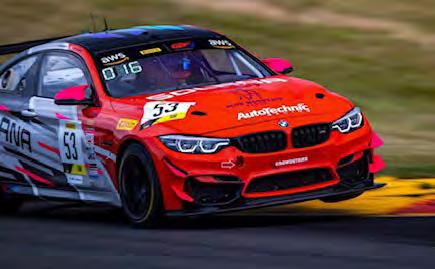
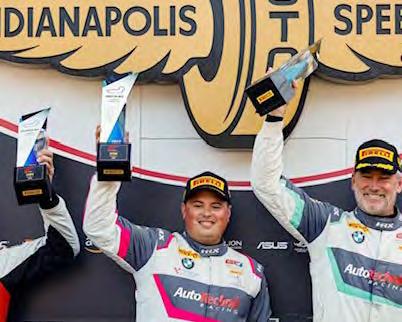
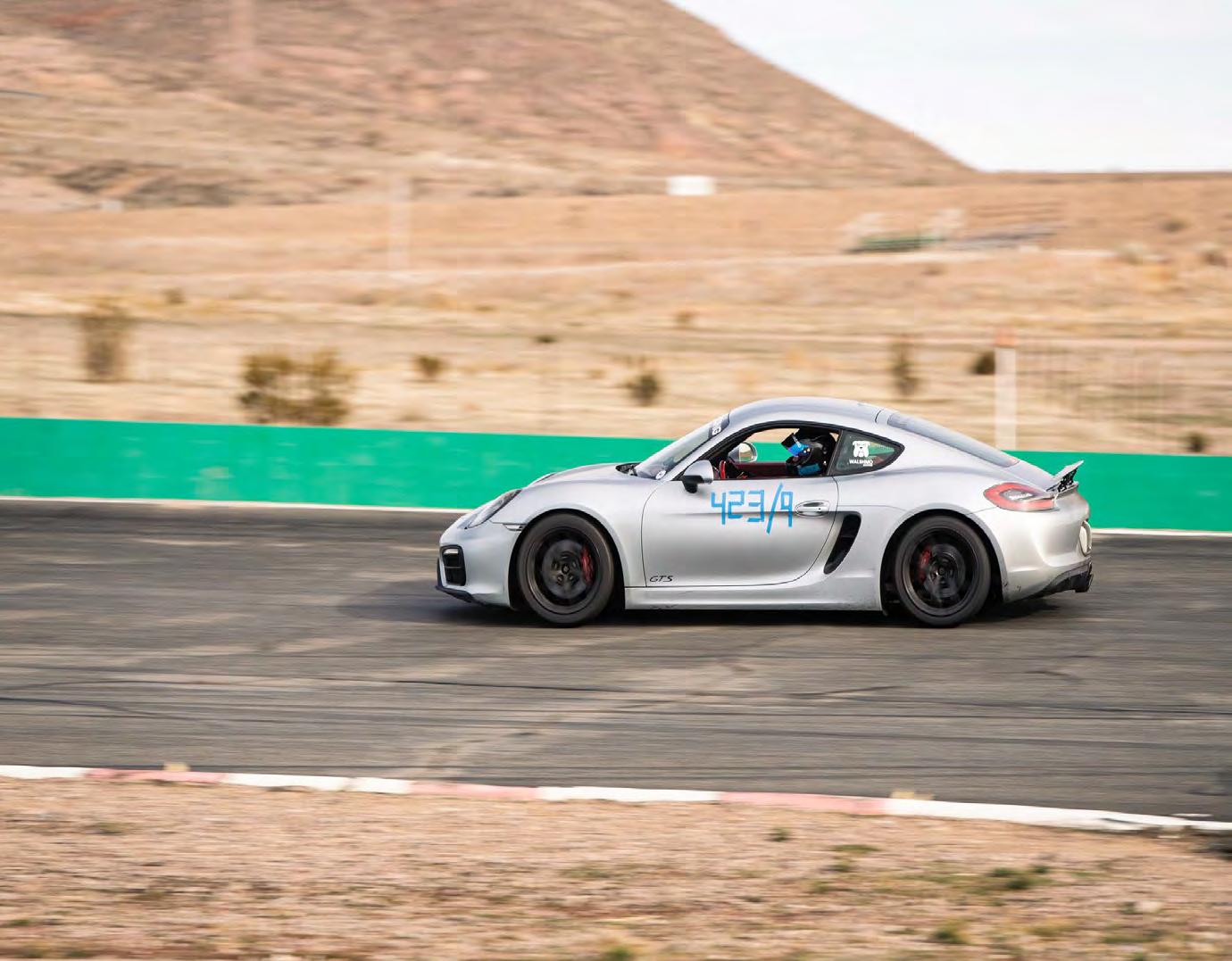
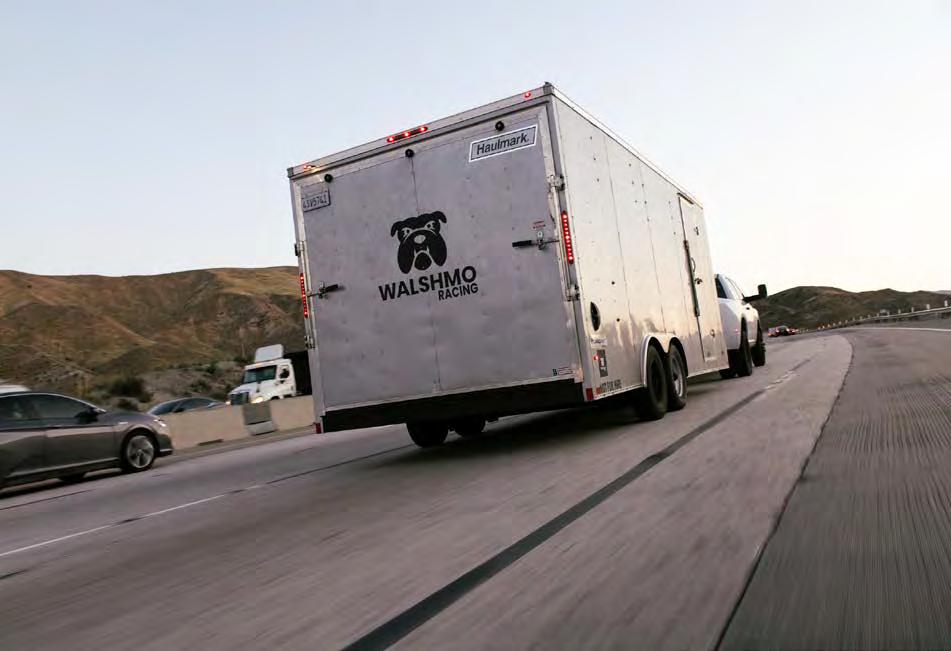
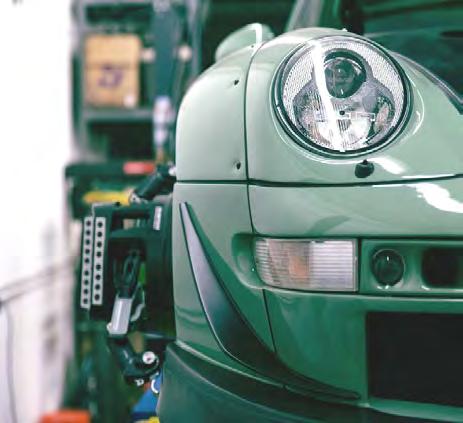
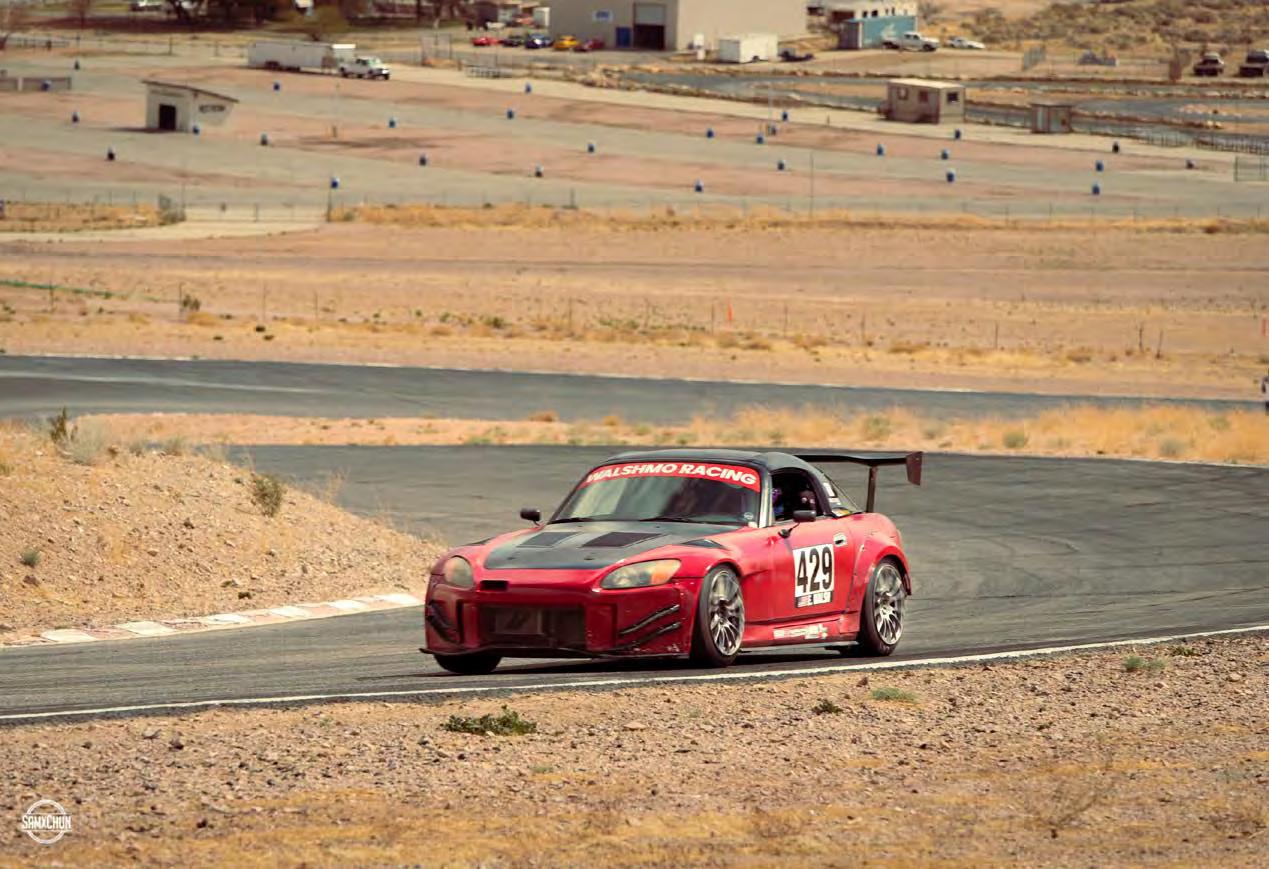
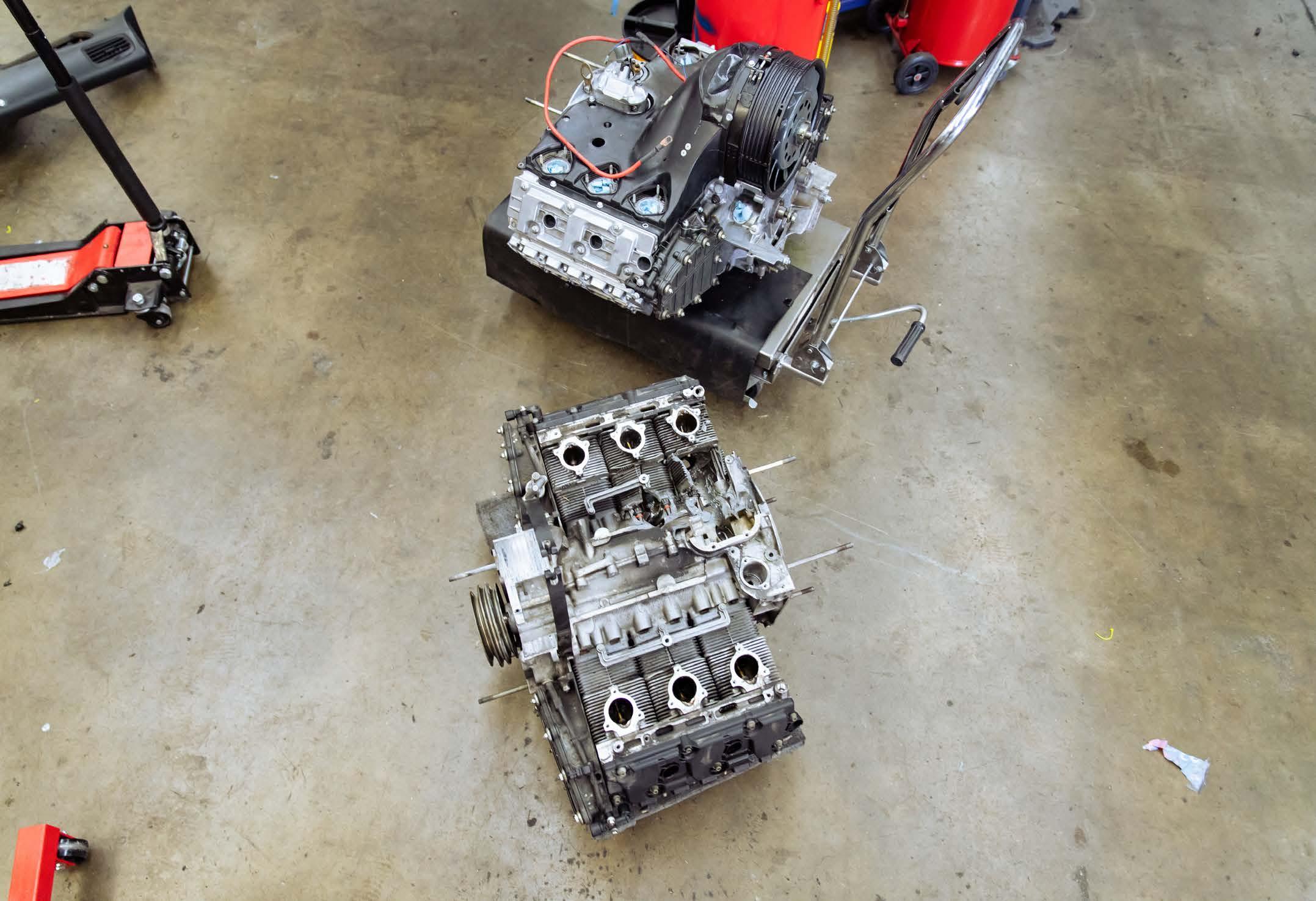

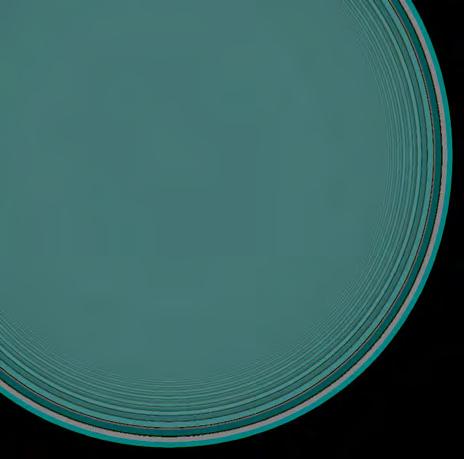
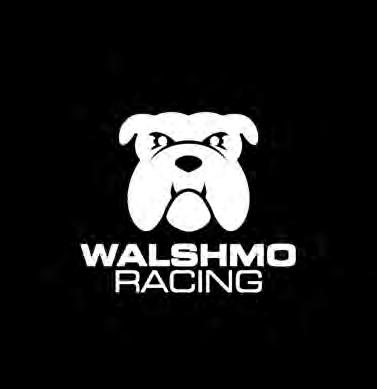

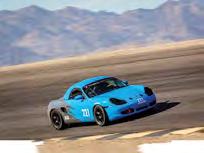


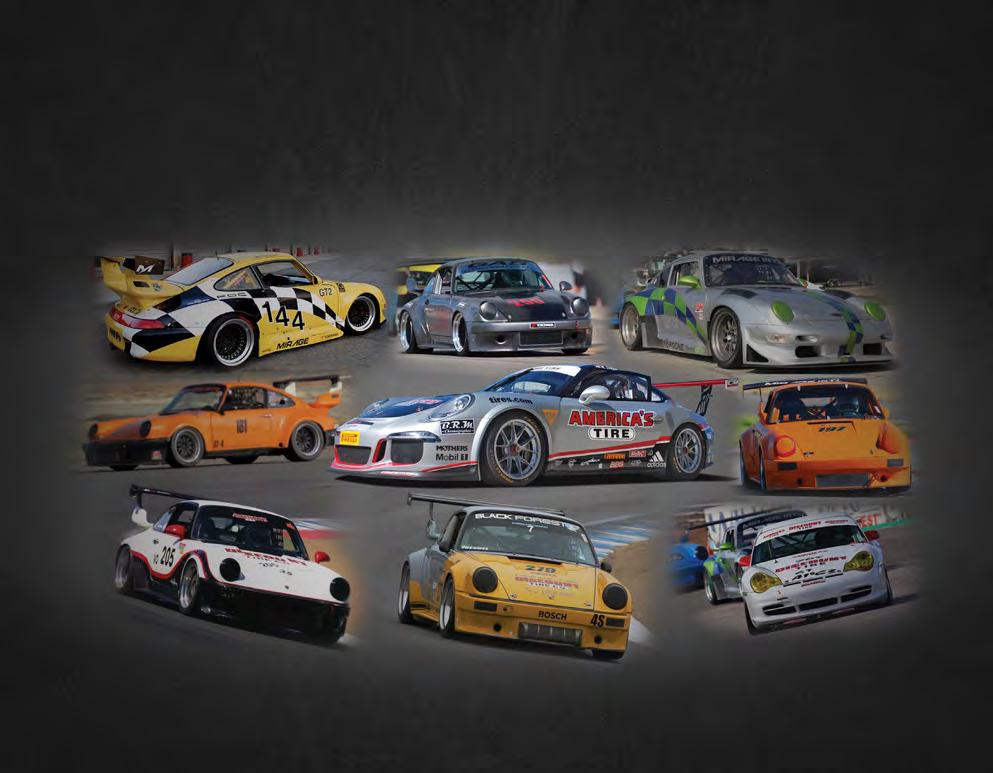
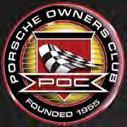
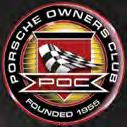
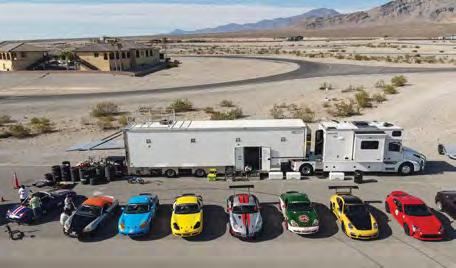
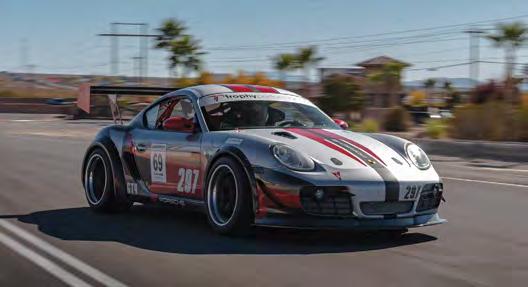
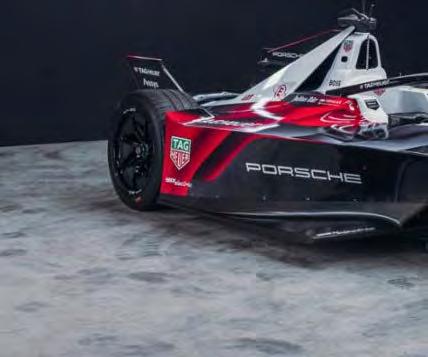
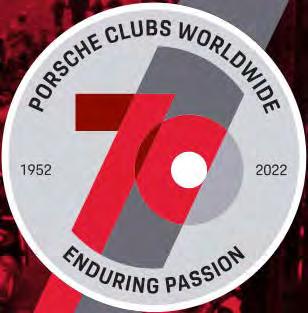
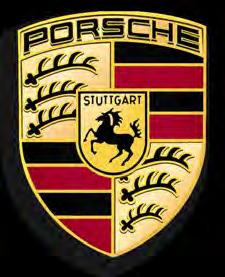
With the Porsche 99X Electric Gen3, Porsche heads into a new era of Formula E. The electric racing car, which underwent an evolution in the Porsche Development Centre in Weissach, celebrated its world premiere in the Porsche Experience Center in Franciacorta, Italy.
The Mexico City E-Prix on January 14, 2023 will be the first race for the Porsche 99X Electric Gen3. The arrival of the third vehicle generation at the start of next season heralds a new era for the world’s first electric racing series.
Performance: The performance of the new Gen3 vehicles increases from 250 to 350 kW (476 hp).
Powertrain: Developed in-house by Porsche Motorsport with a maximum drive power of 350 kW on the rear axle – 100 kW more than the predecessor generation (Gen2).
Brakes: The new front powertrain adds 250 kW to the 350 kW at the rear, resulting in energy recovery with an output of up to 600 kW – more than double the regenerative capability of the Gen2 vehicles. Additional fraction brake controlled by a brake-by-wire unit.
Efficiency: The electric motor achieves about 95 percent power efficiency compared to around 40 percent for an internal combustion engine. Over 40 percent of the energy used is recuperated via regenerative braking.
Charging capability: The new ultra-high-speed charging capacity of the Gen3 vehicles should add around 600kW of energy during the race. This means
that the chargers of the new Formula E generation would be almost twice as powerful as the world’s most advanced commercial chargers. Moreover, the fastcharge technology should guarantee a consistently high battery performance.
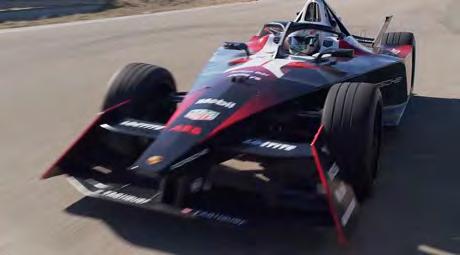
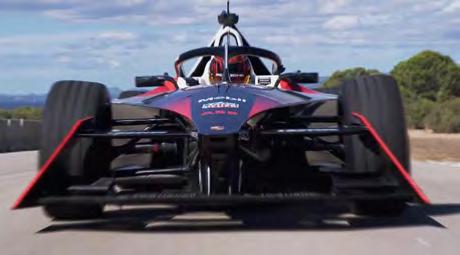
Sustainability: According to the component manufacturer, the battery cells in the new Gen3 cars are made from sustainably sourced minerals. After every race season, the battery cells should be reused or recycled. For the construction of the carbon fibre bodywork, the manufacturer states that recycled carbon fibre is used from retired Gen2 vehicles. This should reduce the carbon footprint of production by more than ten percent. To determine measures that can help reduce environmental impact, the carbon footprint of new Formula E vehicles is measured from the very start of the design phase. All unavoidable emissions will be offset as part of Formula E’s net zero carbon commitment.
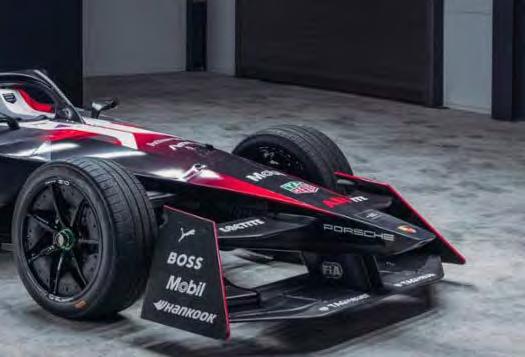
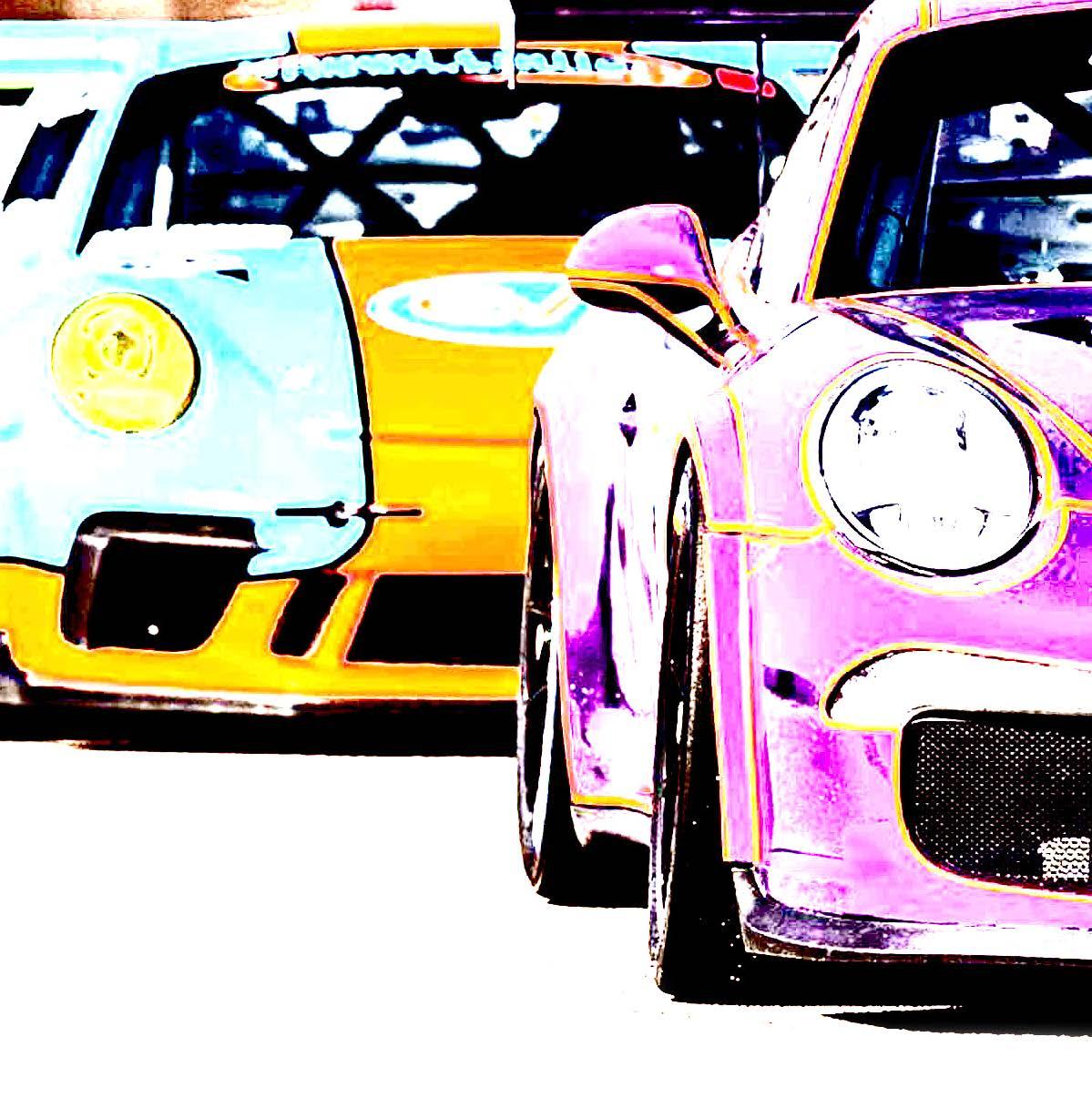

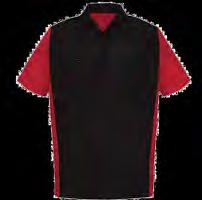

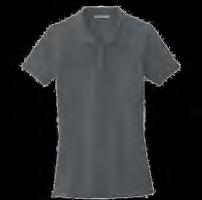

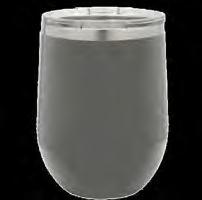



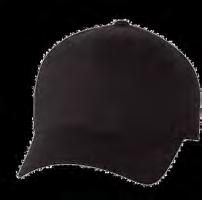
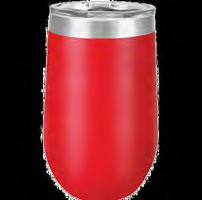
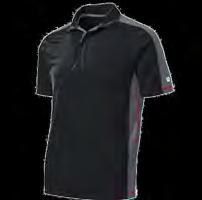



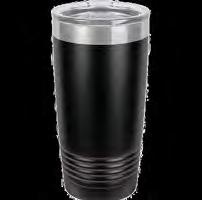


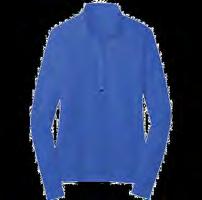
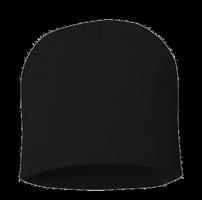
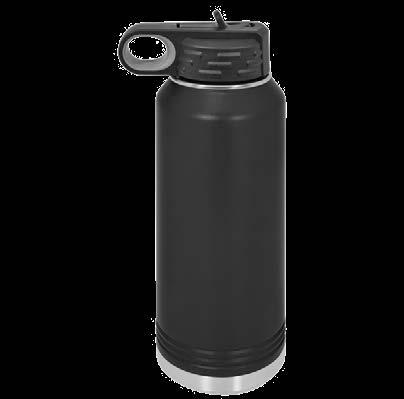


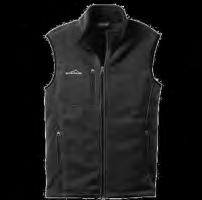
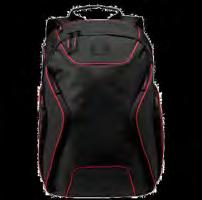





1st Travis Brown
4th Matt Hollander 2nd Tom Layton 5th Corey Latvala 3rd Michael W. Johnson 6th Doug Boccignone
1st Michael W. Johnson 4th Matt Hollander 2nd Corey Latvala 5th BJ Fulton 3rd Jacob Abrams 6th Andrew Beckner
1st Tom Layton 4th Michael W. Johnson 2nd Corey Latvala 5th Michael Oest 3rd Travis Brown 6th Matthew Sipek
1st Tom Layton 4th Michael W. Johnson 2nd Travis Brown 5th Paul Newton 3rd Michael Oest 6th Jad Duncan
1st Travis Brown 4th Doug Boccignone 2nd Michael W. Johnson 5th Corey Latvala 3rd Jacob Abrams 6th Sam Mayorga
1st Tom Layton 4th Michael Bolten 2nd Michael Oest 5th Matthew Sipek 3rd Jacob Abrams 6th Paul Newton
1st Tom Layton 4th Michael Bolten 2nd Michael W. Johnson 5th Corey Latvala 3rd Michael Oest 6th Travis Brown
1st Tom Layton 4th Michael W. Johnson 2nd Corey Latvala 5th Sam Mayorga 3rd Travis Brown 6th Matthew Sipek
1st Tom Layton 4th BJ Fulton 2nd Michael W. Johnson 5th Corey Latvala 3rd Travis Brown 6th Matthew Sipek
1st Corey Latvala 4th Sam Mayorga 2nd Michael W. Johnson 5th Andrew Beckner 3rd BJ Fulton 6th Matthew Sipek
1st Tom Layton 4th Michael W. Johnson 2nd Travis Brown 5th Michael Oest 3rd Corey Latvala 6th Michael Bolton
1st Travis Brown 4th Nick Facciolo 2nd Tom Layton 5th Michael Bolten 3rd Corey Latvala 6th Paul Newton
1st Tom Layton 4th BJ Fulton 2nd Travis Brown 5th Jad Duncan 3rd Michael Bolten 6th Doug Boccignone
1st Tom Layton
4th Corey Latvala 2nd Michael Bolten 5th Sagar Dhawan 3rd Jad Duncan 6th Mark Rondeau
1st Tom Layton 4th Michael W. Johnson 2nd Corey Latvala 5th Mark Rondeau 3rd Travis Brown 6th Jad Duncan
1st Tom Layton 4th Michael Oest 2nd Corey Latvala 5th Mark Rondeau 3rd Michael Bolten 6th Sam Mayorga
1st Corey Latvala 4th Doug Boccignone 2nd Sam Mayorga 5th Jacob Abrams 3rd Michael Bolten 6th Charles Dick2
1st Tom Layton 4th Michael Bolten 2nd Corey Latvala 5th Matt Hollander 3rd Jacob Abrams 6th BJ Fulton
1st Travis Brown 4th Tom Layton 2nd Corey Latvala 5th Michael Bolten 3rd BJ Fulton 6th Sam Mayorga
1st Jacob Abrams 4th Jad Duncan 2nd Michael Bolten 5th BJ Fulton 3rd Corey Latvala 6th Michael W. Johnson
1st Corey Latvala 4th Michael W. Johnson 2nd Tom Layton 5th Michael Bolten 3rd Jeffer y Shulem 6th BJ Fulton
1st Tom Layton 4th BJ Fulton 2nd Michael Bolten 5th Jad Duncan 3rd Sam Mayorga 6th Jeffer y Shulem
1st Tom Layton 4th Michael Oest 2nd Corey Latvala 5th Jad Duncan 3rd Michael W. Johnson 6th Michael Bolton 1st 4th 2nd 5th 3rd 6th 1st 4th 2nd 5th 3rd 6th
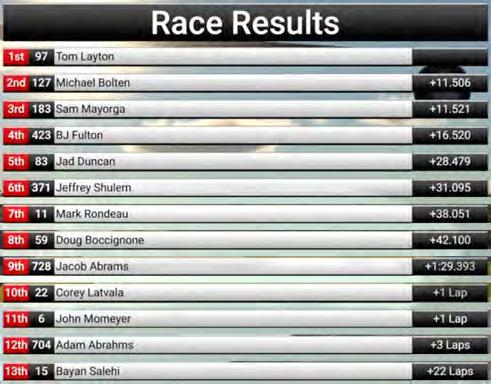
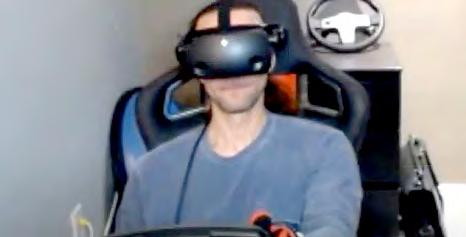
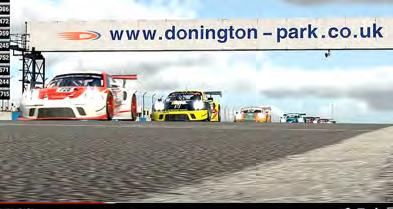
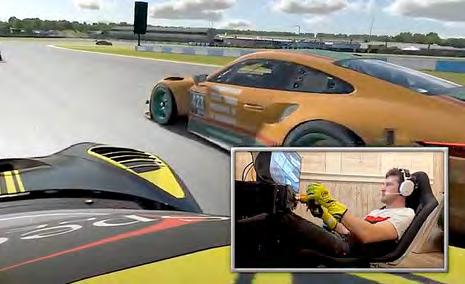
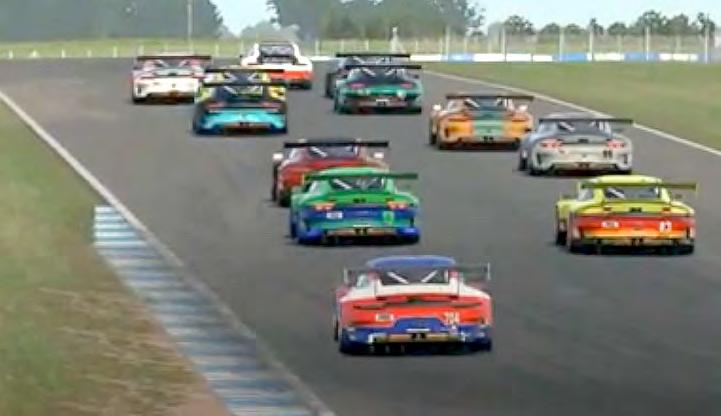
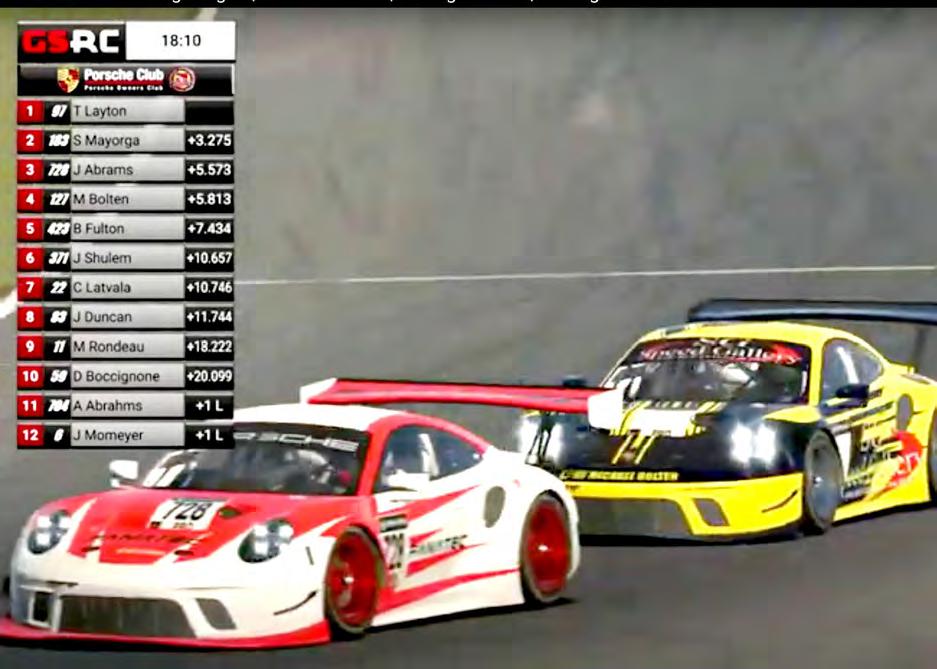
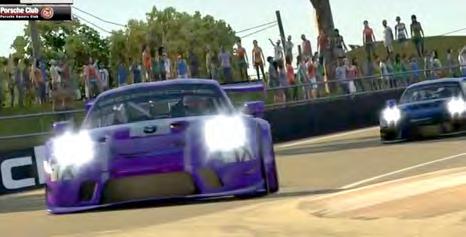
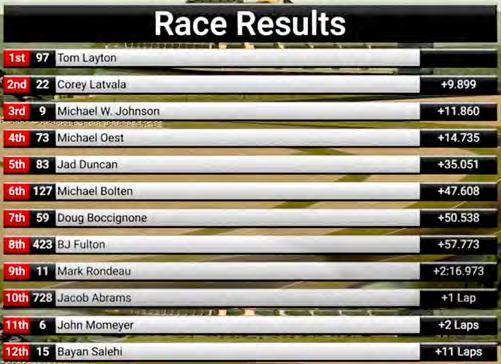
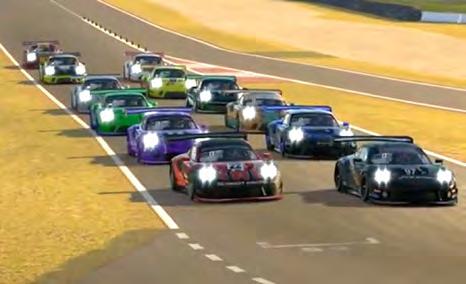
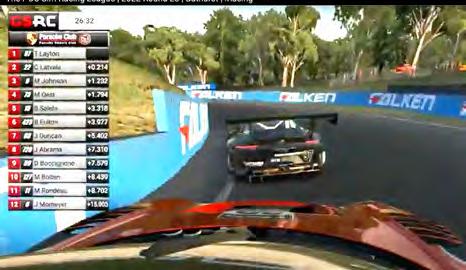
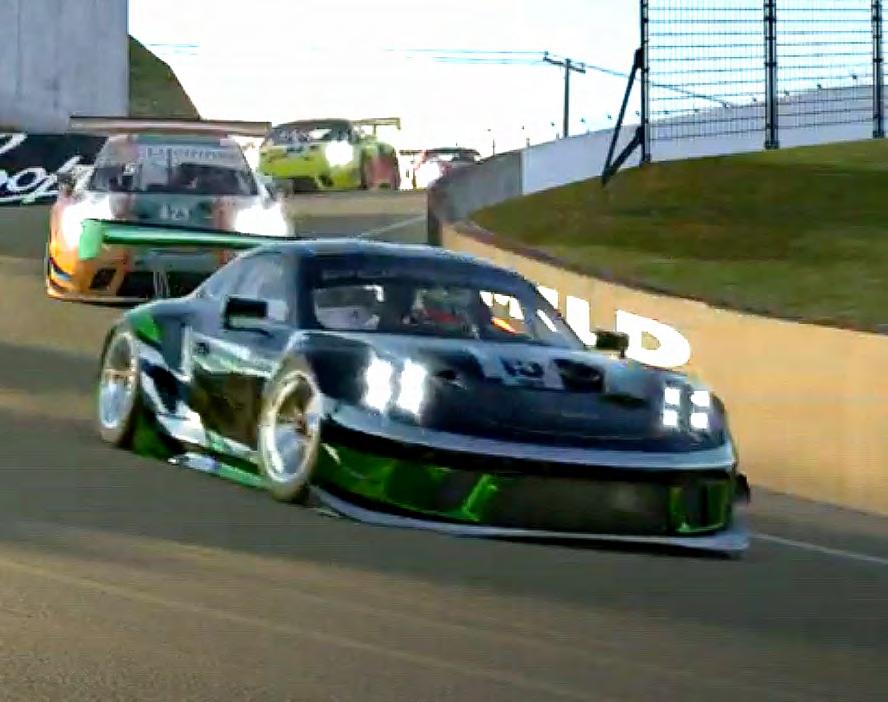
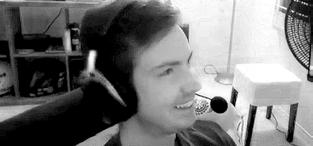
As our POC Sim Racing League begins practicing for its upcoming race at Bathurst, I’m reminded of a public sim race earlier this year where I finished qualifying with what felt like a solid lap time and was subsequently given 1.7 seconds worth of reality check by 2021 IndyCar series champion Alex Palou. The depth of talent available in iRacing is immense and those of us who aren’t pros can generally hop on, get served some humble pie, and be reminded that we have more work to do. One of the most important things to remember while racing (or participating in any other kind of competition) is that there’s always room for improvement, no matter who we are. Every racer has their excuses when they lose or feel stuck: I don’t have as much time to practice, I’m not a pro driver, my equipment isn’t as good as the other guy’s. These excuses offer us a choice to either dwell on things we can’t control and maintain our current level of skill, or to accept where we are currently and do whatever is possible to improve.
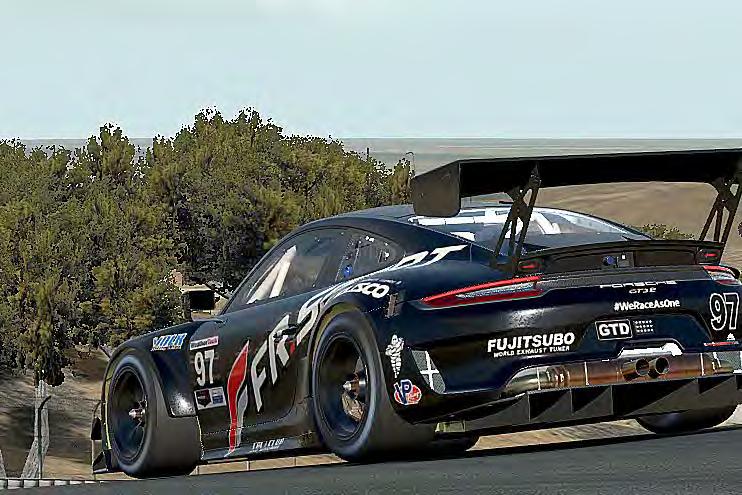
Once we’ve moved past being a novice, the cycle of improvement generally involves a series of plateaus followed by breakthroughs. As we reach these plateaus, we start feeling frustration as we turn lap after lap in practice and just can’t seem to reduce that lap time below a certain point. This is where we have to remember a few important things: we can still improve, we generally have the same ability to be as fast as anyone else, and we need to employ focused and meaningful practice. And with that fluff about inner game out of the way, let’s get into some key points I’ve found for meaningful practice in iRacing and elsewhere.
Stop crashing. Put in clean laps from the beginning while practicing Numero uno, stop crashing while practicing, and keep the car on track. It’s easy to get carried away with the fact that the sim has a reset button and to approach laps where it’ll either be a perfect lap or you’ll bin it. We learn extremely slowly if we can’t make it around the track each lap. We still need to push the car and explore the limits but we need to get there systematically, even if it feels boring and tedious. This is how pros do it, and so should you.

As we are learning a track, we first need to pick our references in a way that we know for certain we can make it around the corner. For some of us, that means braking one marker earlier than we may think. For others, maybe it’s three markers early. Find whatever margin of safety you need to make it around successfully each time, and make that your key priority.
Once you’ve done a couple laps and have your initial references picked out, a good strategy is to brake hard for each corner and slow to what feels like an appropriate turn-in speed for that corner, even though it’ll be way too early to actually turn in. Pay attention to how early you could have turned in vs. how far away the turn-in point actually is. Looks like you’re slowed down 50 ft early vs. where you should be turning in? Now take half that distance and brake 25 ft later next lap. Half, not all, because if we get too greedy we break rule number 1 which is keeping the car on track.
Don’t
Once we’ve found some good references and can turn laps that are approaching our limit, our next bad habit is to impatiently try and lop off huge amounts of lap time each subsequent lap. Even if we know someone else is lapping two seconds faster than us, the chance of every corner miraculously coming together all at once to find those two seconds is practically zero. Be patient and think about how a very small improvement applied over each corner adds up to a larger sum over the course of the lap. Setting our goal to improve by around half a tenth or less per corner gives us a target that’s achievable while still leaving room to correct for mistakes.
iRacing has many options for comparing yourself to others. You can look up race results, participate in open practices, and even pay for Virtual Racing School and directly compare telemetry with pros. More recently, Garage 61 has become available as a free telemetry-sharing service. I recommend signing up with either Garage 61 or VRS and learning the basics of analyzing your telemetry vs. a reference lap under similar conditions. The first thing to look for is to find the one or two corners where you’re losing the most time, dig into why you’re losing that time, and then work towards reducing that gap.
This is where we tend to fall into the previously mentioned trap of trying to find too much time all at once. Data shows the pro driver on VRS brakes 50 ft later and gets you by half a second in turn 2? Slim chance that you’re going to just move your brake point 50 ft and instantly shave that half second. Think about what you can do to brake 5 ft later on this lap, and shave a smaller amount of time. Keep it realistic and move incrementally and patiently toward your goals. Once you’ve found 0.05 s, work towards the next improvement until you’ve hit a plateau with your current focus. Then re-evaluate and find the next lowest-hanging fruit.
A driver who keeps the car at 10/10ths but is on the correct line 70% of the time is almost always going to be faster than a driver who is on the line 100% of the time but is driving at 7/10ths. Trail braking and rotating the car into and out of a corner is significantly more important and should be your focus rather than thinking about exactly where on track the car needs to be through the corner. Your ability to keep the car on the limit through the corner is actually what will create the racing line. For example, you know you apexed too late if it’s easy for you to get all the way to the outside at corner exit. Conversely you apexed too early if you have to wait until well after the apex to get back on the gas. You’ll find the correct apexes, braking points, and turn-in points by keeping the car on the limit and evaluating what parts of the corner felt too easy, too difficult, or just right.
Any fool can smash the gas and power out of a corner. The difficult part is corner entry. This is where people lose the most time and need to focus their practice. Blend the end of straight-line braking into your turn-in and trail braking to have an efficient corner entry. Once you finish straight-line braking, your brakes’ main purpose becomes rotating the car. Reducing speed is just a side-effect of using the brakes to shift weight forward and gain rotation.
Rotating the car on the brakes turns the racing line into a decreasing-radius spiral similar in shape to an Euler spiral. Accelerating out of a corner creates an increasing-radius Euler spiral. I learned this through an excellent guide on Adam Brouillard’s Paradigm Shift Racing website, and this has completely changed how I approach my line through a corner. Their writing explains this much better than I can, so please see the link below or search google and make this mandatory reading.
https://www.paradigmshiftracing.com/racing-basics/the-racing-line-four-elements-of-a-perfectcorner?view=full#/
Brouillard provides a comparison of a few different line options, beginning with the aforementioned Euler spiral as a “baseline” path, followed by geometric arc and a late apex arc and then gets into the physics of the perfect line through the corner. The focus through the article is not on following an imaginary line but rather how to focus the forces and keep the car on the limit.
In iRacing’s sound settings, you can independently set the tire noise from other sounds. Max out your tire noise and turn down all other noises. Because we can’t feel g-forces in the sim, we really have to use all our other senses to make up for it and keep the car at the limit. Use tire noise to gain feedback on whether the tires are at, or beyond, the limit. Learn what sound the tires make while at peak grip, and focus on maintaining that noise all the way through the corner.
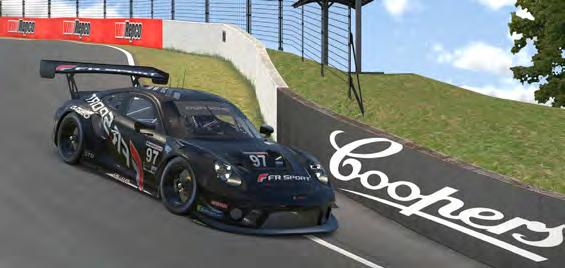
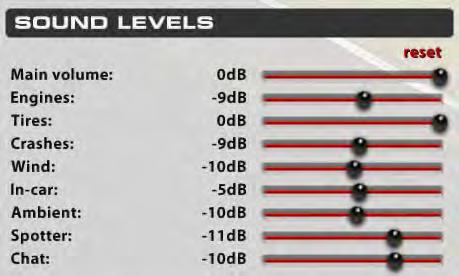
Most people drive with either the front or the rear of the car, meaning they feel comfortable focusing on keeping one end or the other at the limit. I personally drive with the front of the car, meaning I like to keep a very small amount of understeer on the front tires to sense that the car is at the limit. In the sim my focus is on getting consistent tire noise and feedback from the fronts, from turn-in all the way to the apex. Increasing noise settings helps with this significantly.
Outside of racing, I’ve recently spent an embarrassing amount of time having an existential crisis and exploring the thought of what happens after life, trying to understand consciousness, and reflecting on how short our amount of time here really is. Our time is valuable so why waste it with imperfect practice? Next time you practice, take a step back and evaluate how you can better apply yourself. Take one element of this piece and attempt to internalize it throughout your practice session. Even if it’s just working on your mental game and keeping your morale high while in the plateau part of the improvement cycle. Or if you’re a seasoned driver and didn’t learn anything from this, at least you know to seek elsewhere for your woes. So good luck, stay strong, and keep improving!
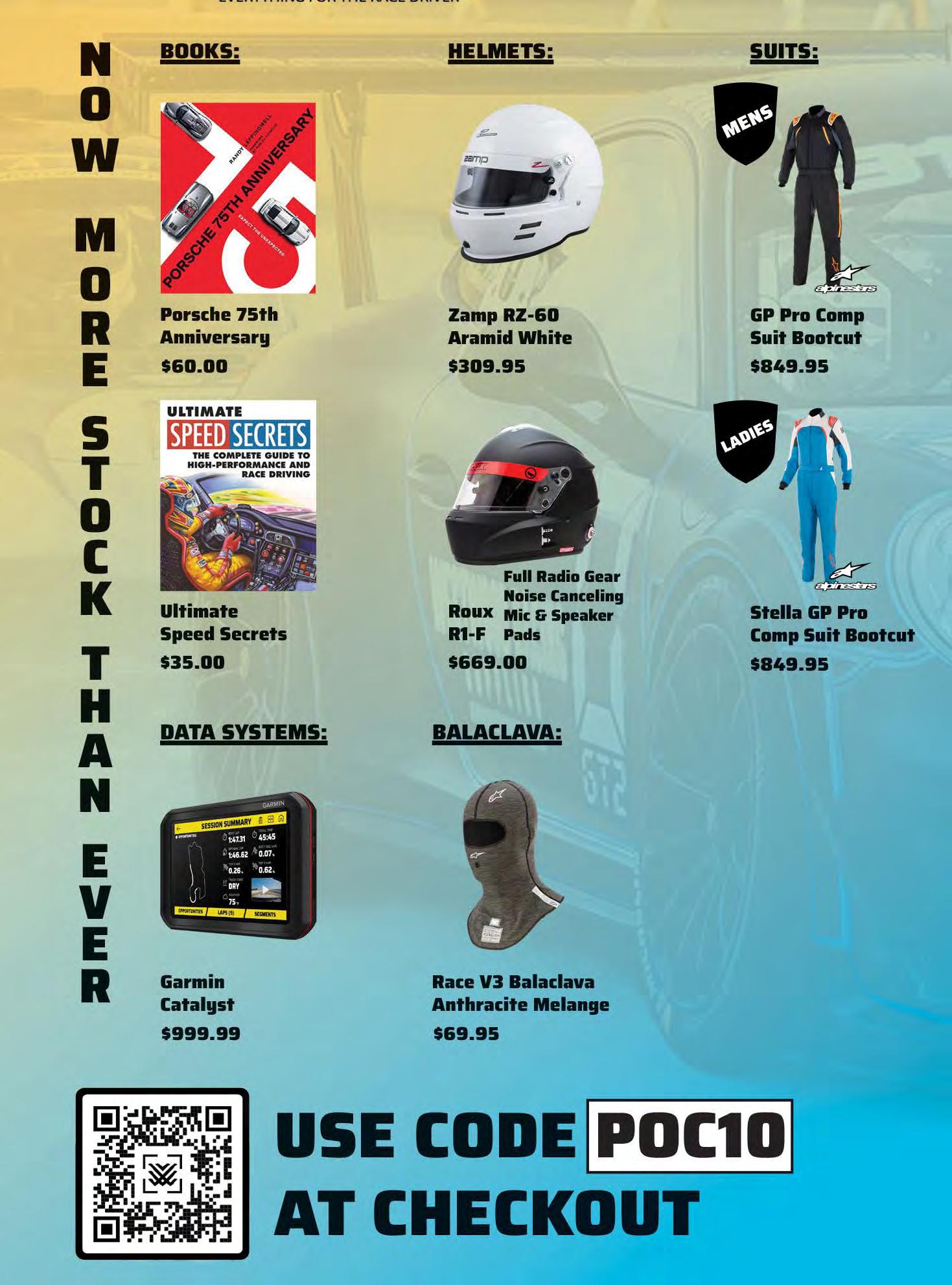

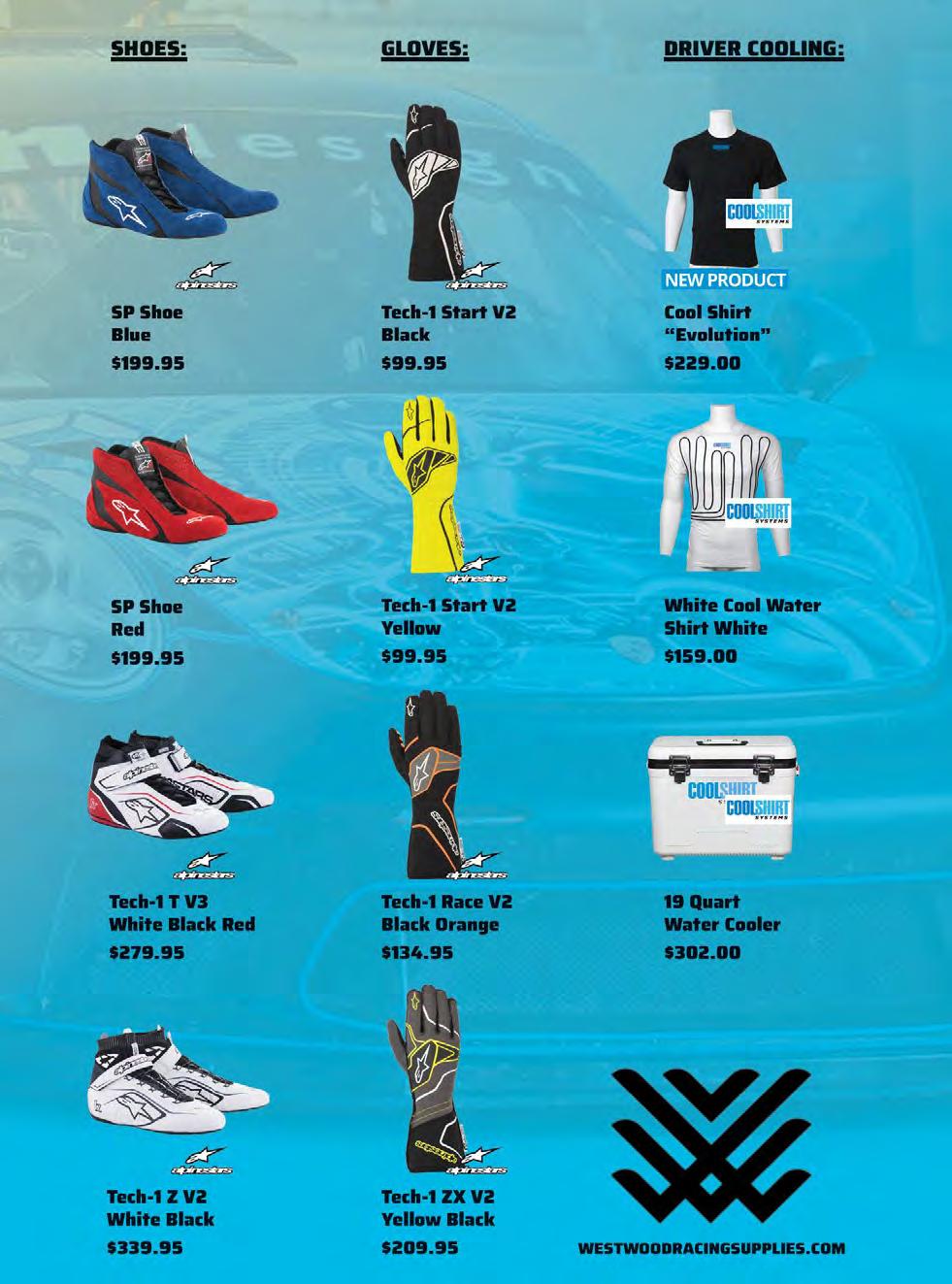
 by Steve Eisler
by Steve Eisler
The last weekend in October presented a unique challenge for almost all of the POC race track drivers. Spring Mountain Motor Resort had just completed construction on its new Charleston Peak track and, with the exception if a few Spring Mountain club members, we all were learning a new track! As we build our racing resume, we frequently are faced with the challenge of finding the quickest way around a new track. Rarely is everybody doing it at the same time. With everyone in the learning mode, I decided to find out what techniques some of the better drivers were using to get up to speed as quickly as possible. I am a big Ross Bentley fan and started by reviewing his ‘How to Learn a Track…Fast!’ article available on his SpeedSecrets. com website. This 16-page article covers techniques that can be used before arriving at the track and then at the track. It is an excellent resource for new drivers, and a great refresher course for those of us going to a new track or a track that we have not visited recently. Then I followed up by interviewing several of the drivers who had been competing on several new tracks recently.
My first group of contributors included Chris Keefer, who has just moved up to the Orange Race Group, and has had to learn new tracks as well as new ways to get around the track in racing traffic. Murray Wunderly, a consistent Top Ten Time Trial driver, who was learning the tracks in a new car this year, and Rob Walker, who had just finished his first year of racing in the GT4 America series, which had races on 7 different tracks, six of which were new to him. Here are some interesting ideas that may help you accelerate the learning curve at a new track.
The first thing mentioned was to find a good You Tube video of someone driving the track, preferably in a car similar to yours. It is important to have a good view of the track. Cameras mounted inside the cockpit do not show a clear enough picture of the track. Dashboard or helmet mounted cameras give a better view of the details you need to see. When viewing video, concentrate on car placement, where the car should be in each of the corners. Once you know all of the corners of the track, their name or number, use the map and try to visualize what you expect to see as you mentally drive the track. Look at the 2-dimensional map of the track and visualize what that portion of the track looks like in 3 dimensions. A racing simulator is a valuable tool if it is available. Rob uses the Sim as a learning tool, “Until you stop learning. Once I am only improving by fractions of seconds, I stop using the Sim.”
Whether it is using video, SIM, or visualization, it is important to know the track layout (be aware of what is coming next) before you arrive at the track.
Once you arrive at the track, everyone agreed that time on the track was the most important tool for learning. I have always tried to join a group that is renting the track on Friday before a TT event to get an extra day of practice. Murray related an experience at Indy Motorsports Ranch where their team of 3 drivers took turns driving in practice, but always had one of the other drivers in the passenger seat to maximize everyone’s learning opportunities. Everyone felt that riding with someone who knows the track is more beneficial than having that person ride with you when you are learning the track.
Rob shared a trick he learned from a driving coach. After you and your tires get warmed up, try to pick a spot in each corner where you will return to full throttle. Modify this point as you run out of room at the corner exit until you have an “acceleration point” for each corner or section of the track where you are returning to full throttle. Then repeat the process to determine “braking points” for each corner.
This leads us final thing we discussed, getting help from others. If you are at a new track, ask for advice on difficult or dangerous sections of the track, and for help with negotiating difficult sections or turns. Advice from an expert who has been on the track many times is invaluable, and many of our POC drivers are willing to share.
On Sunday, October 30, I talked with Danna Van Noy who had just recorded TTOD for the Time Trial group (2:06.039) at Charleston Peak. Since moving to Utah, Danna has had to learn several new tracks, and was very happy to share some of her new track techniques. First, she noted that she and her husband Bryan do not have SIM, so they rely heavily on You Tube video. She suggested breaking the track down into 4 or 5 segments and learn it one segment
at a time before trying to visualize the whole track. She also felt that it was harder to learn when corners were identified by names, so she just identifies all corners by numbers. Tracing or drawing copies of the track map were not helpful to her, because you are just copying what is on the paper in the same size and orientation. Instead, Danna (who says she’s a “kinesthetic learner”) suggests drawing a large view of the track in chalk in your driveway or on the street. Then she “drives” through the track, taking one segment at a time and tries to “predict” what’s coming up next. This is a technique I am definitely going to try!
At the track Danna emphasizes going slow at the start and concentrating on locating places where the actual track is different from what you expected to see. (Differences in camber, elevation changes, bumps or patches that you cannot see on a track map.) “Once you know the track and what to expect as you enter and exit each turn, find a good, experienced driver and follow them around the track”, she advises. You can see their line, braking points, acceleration points and how fast they are going in difficult parts of the track.
Chris MacDuff has a unique approach to learning a new track. When asked for his tips on preparing for a new track he said, “Unfortunately, I did not prepare at all for Spring Mountain due to time constraints. In general, at a new track, video is good for getting to know the track, but it does not help with braking zones or speeds.” Chris believes that work on the simulator, if you have one, is more beneficial than viewing videos. “When I get to a new track, I follow the curbing which, initially, helps you know where you are going and points you in the right direction on your exits.” As you spend more time on the track, you can begin to dial in your apex points and then build speed. He said that almost every corner on a new track can be related to another corner that you have driven on another track. As you approach the new corner, think about a similar corner and then make adjustments for the new corner. On a new track it is very important to be looking further ahead than normal. This is counter-intuitive, since you are so concerned with where you are and the landmarks 50 feet in front of you, when you really need to be looking much further ahead to prepare for the upcoming corners. Once you have established the apex for each corner, you begin to build speed by driving a consistent line checking your car position at the apex and corner exit. Add more speed until you run out of room at the exit or you feel the rear end getting loose. Data is also helpful to see where you need to improve, and is a great tool for recognizing how to go faster. Many people are also using the Garmin Catalyst which is a very useful tool and much more cost effective than a full data system. Since I had gathered most of this information after I had done my practice runs on Friday and TT runs on Saturday and Sunday, I thought it would be interesting to compare my preparation to the changes I would have made with this great input.
I was very successful on my “before arrival” preparation. I found several maps of the track and tried to draw the line on the track map, but I think the map line was too narrow to draw a good line. I definitely will try to do a large chalk map and add the line before Big Willow. Tracing the map did not really help much. I found that I ended up visualizing the track in segments. At first, I could only remember the first 5 turns until I got lost. Adding a few turns at a time made it easier to memorize the whole track. I looked at the video simulation provided by the track, and it was played too fast and did not show details or actual views of the track. I did find a good You Tube video of a GT3 on the correct track configuration and watched it many times. I found that holding the track map in my hand as I watched the video and rotating the map to match the direction that was shown on the video was a big help. I later used the video to mark the curbing and the flag towers on the map. Then I added braking zones and shifting points that I could identify by the sound track on the video. I also noted three turns that were similar to turns at other tracks. Finally, I marked the GT3’s slowest speed at the 4 low speed turns on the track, marked the passing zones and added notes. With this information I was able to draw a better line on the map. I did not sit in my car and “drive” the course with hand movements on the steering wheel, braking and shifting, as I have done for other events.
In my first session on Friday, I felt that I knew the course well. There were a few times when I felt lost on the track, but I soon recognized where I was and was able to proceed without surprises. My “after arrival” preparation was not as successful as the “before arrival”. Although I improved my time in almost every session, my improvements were much smaller than the other time trial drivers. I did not have the confidence to increase my speeds as others were doing and was over slowing into many of the turns. I started at the back in every session, which made it hard to find someone to follow but, when I did follow someone, I got some nice improvements. I definitely will do more following and much more riding in the future. And, I want to thank the 5 drivers who took the time to share their experience and suggestions to help us all get up to speed when driving a new track!
In retrospect, Charleston Peak was a high point of the season. The track was beautiful; the weather was great; everyone was excited to discover the fastest way around the new track, and we had a great Spring Mountain catered dinner with door prizes. If that is not enough to get some of you new members to the track, remember these two things: You now know how to learn a new track so you will not feel lost when you drive your first session, AND you will have more fun than you can imagine, as POC members and instructors, help you learn the capabilities of your Porsche.
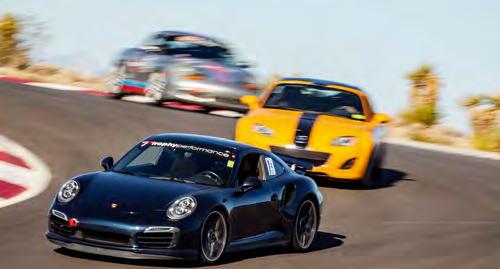
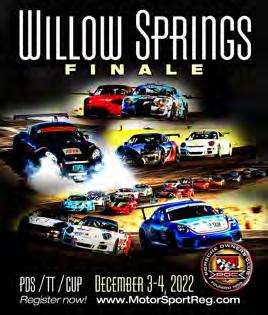
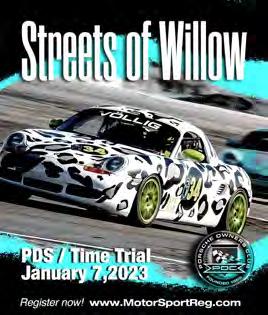

Our season finale. Your final chance of the year to get your “Speed On.” Don’t miss out on this chance to hit the track one more time before the year ends
Register Today!
Our first event of 2023. Bring your car to the Streets and begin honing your skills, for the season ahead, on our favorite short track that many of us learned on.
Registration Open Soon!
Time to Celebrate! Come join your friends and their families at our Annual Banquet, this year being held at one of our esteemed sponsor’s headquarters...Porsche Irvine Registration Open Soon!

And, don’t miss the Official POC Facebook Page with photos, videos and comments from our members.


Be sure to check out the POC website for our 2020 schedule of events and to stay current on PDS, Time Trial and Cup Racing standings.
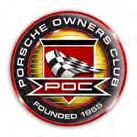
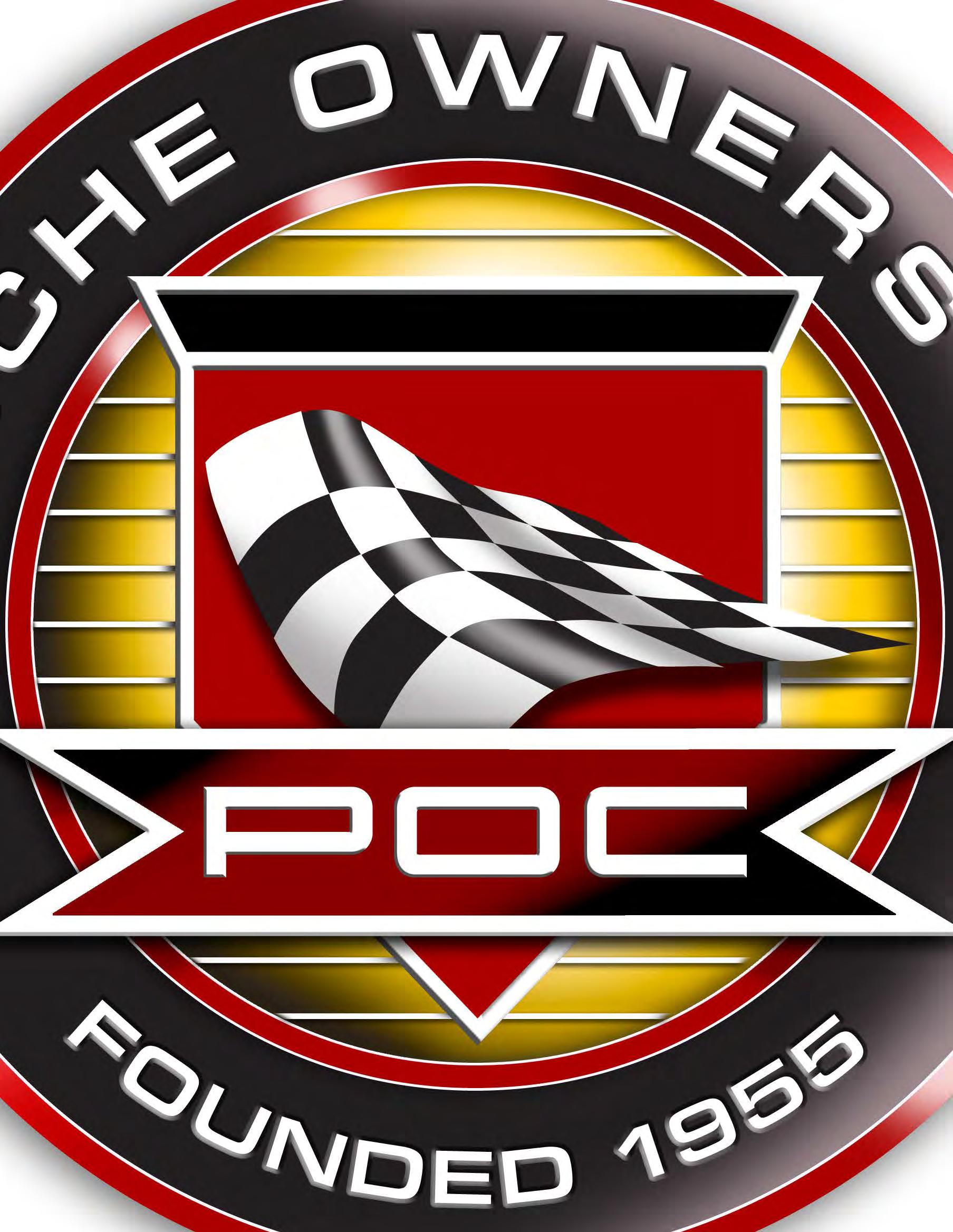
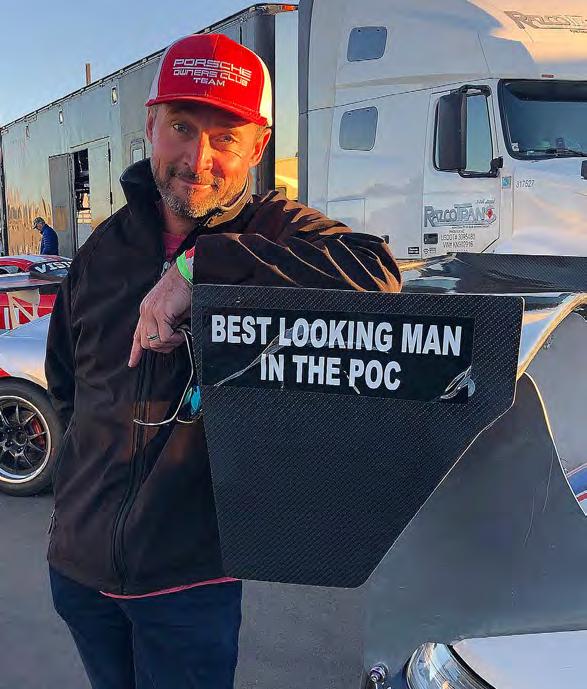 Photo: Karen Robinson
Photo: Karen Robinson